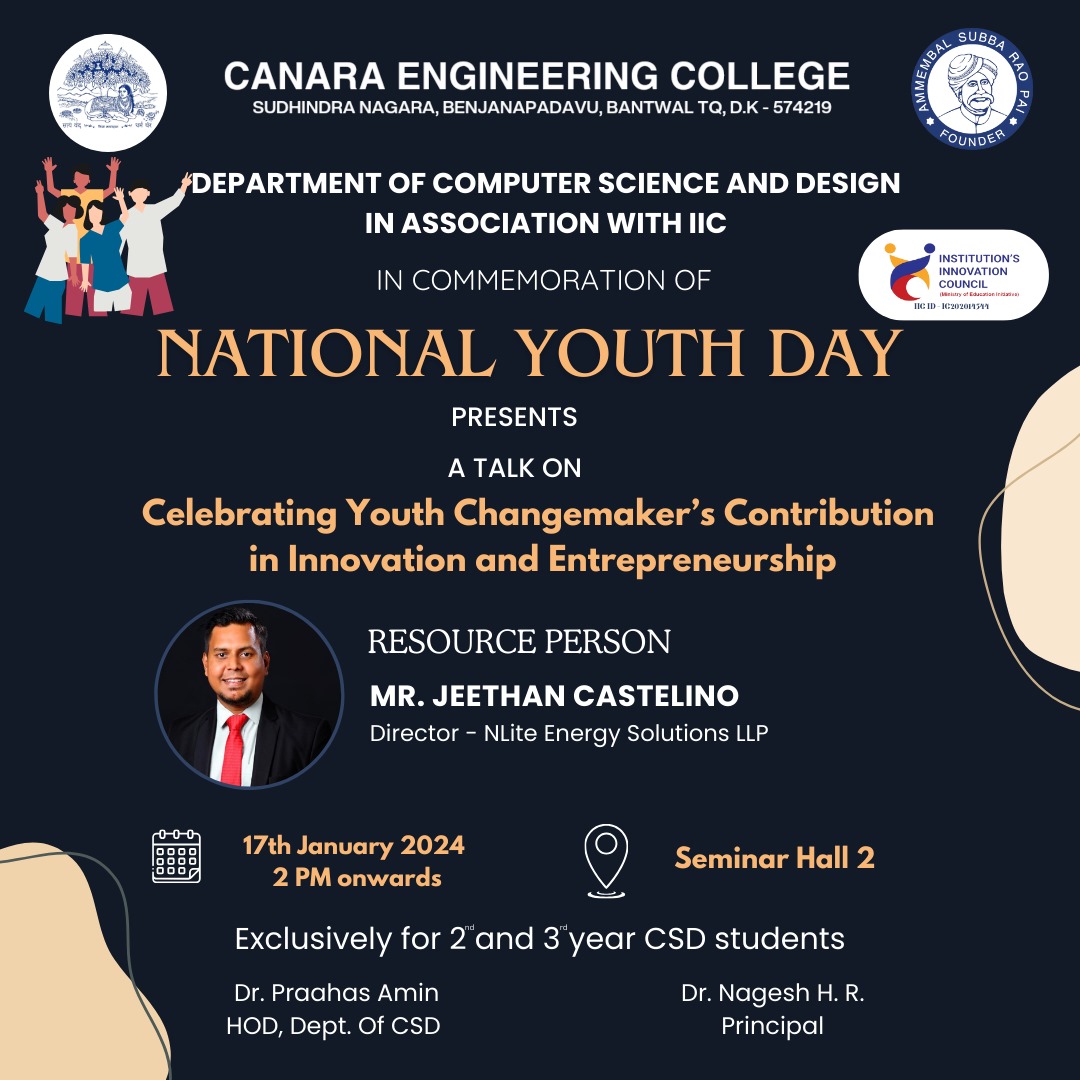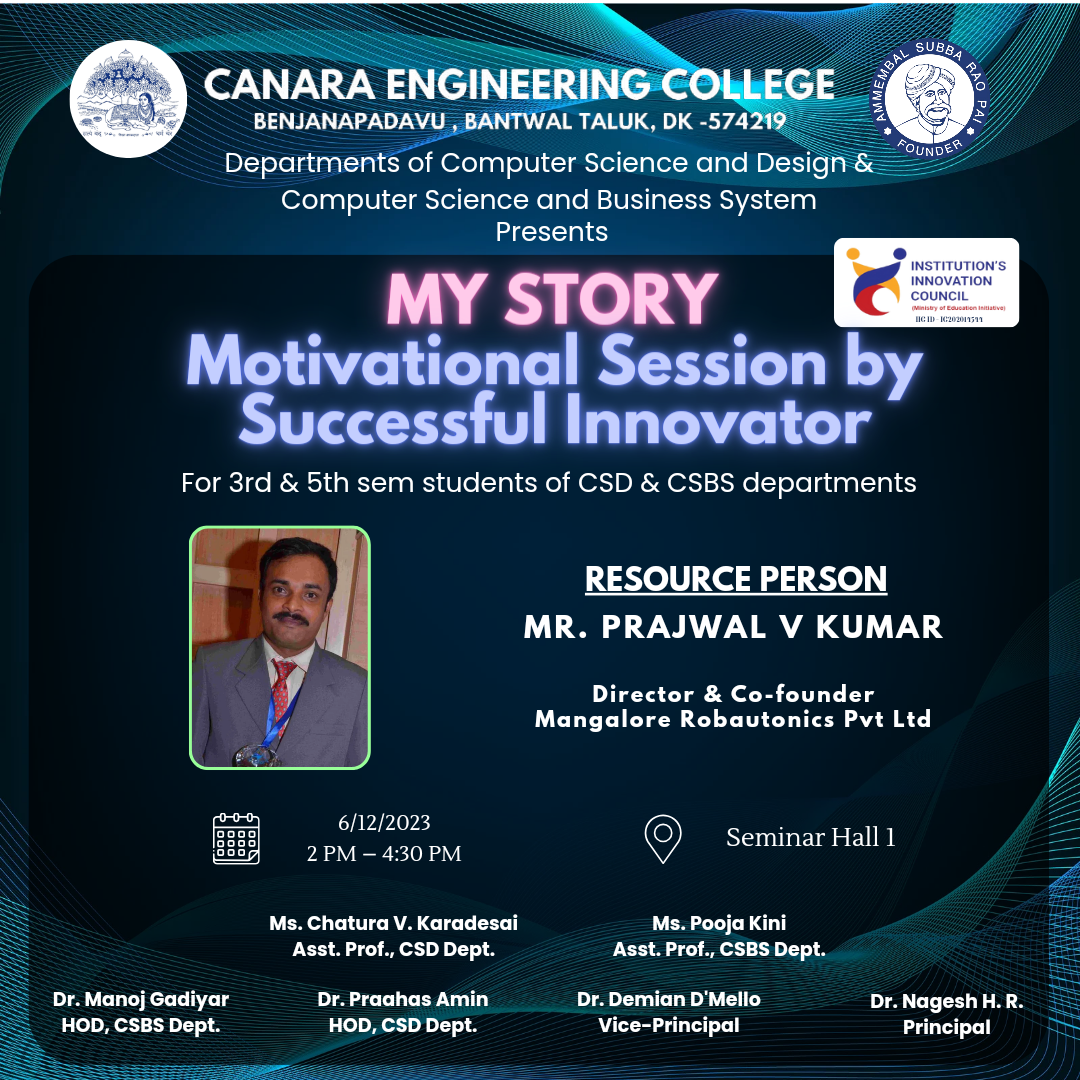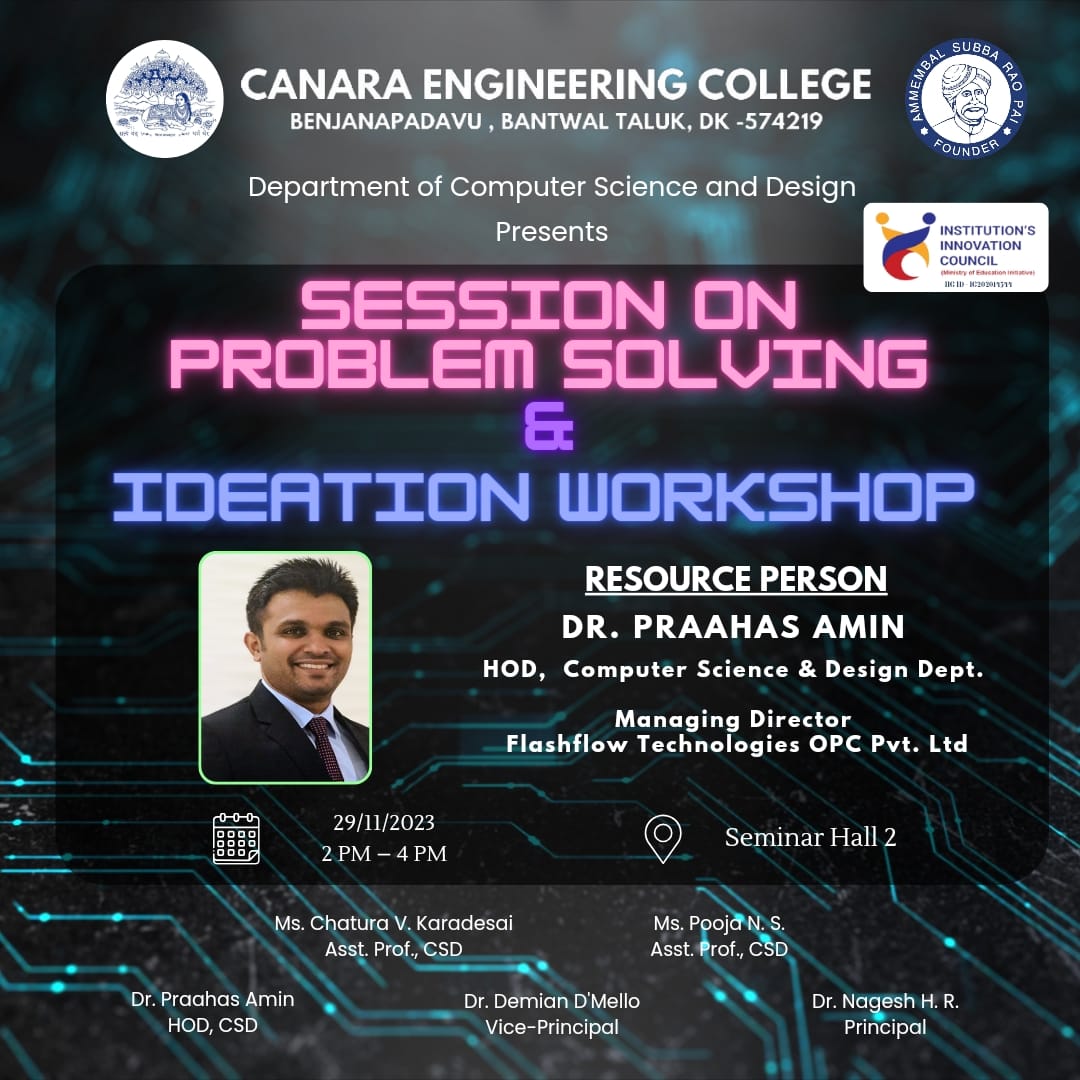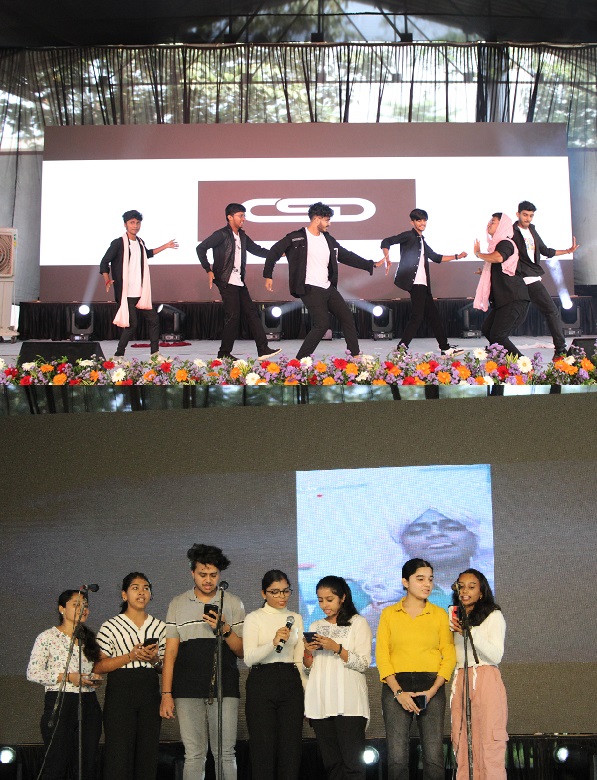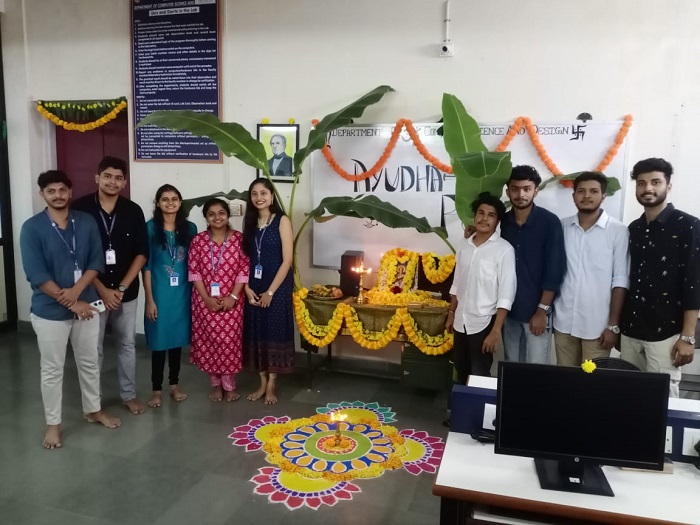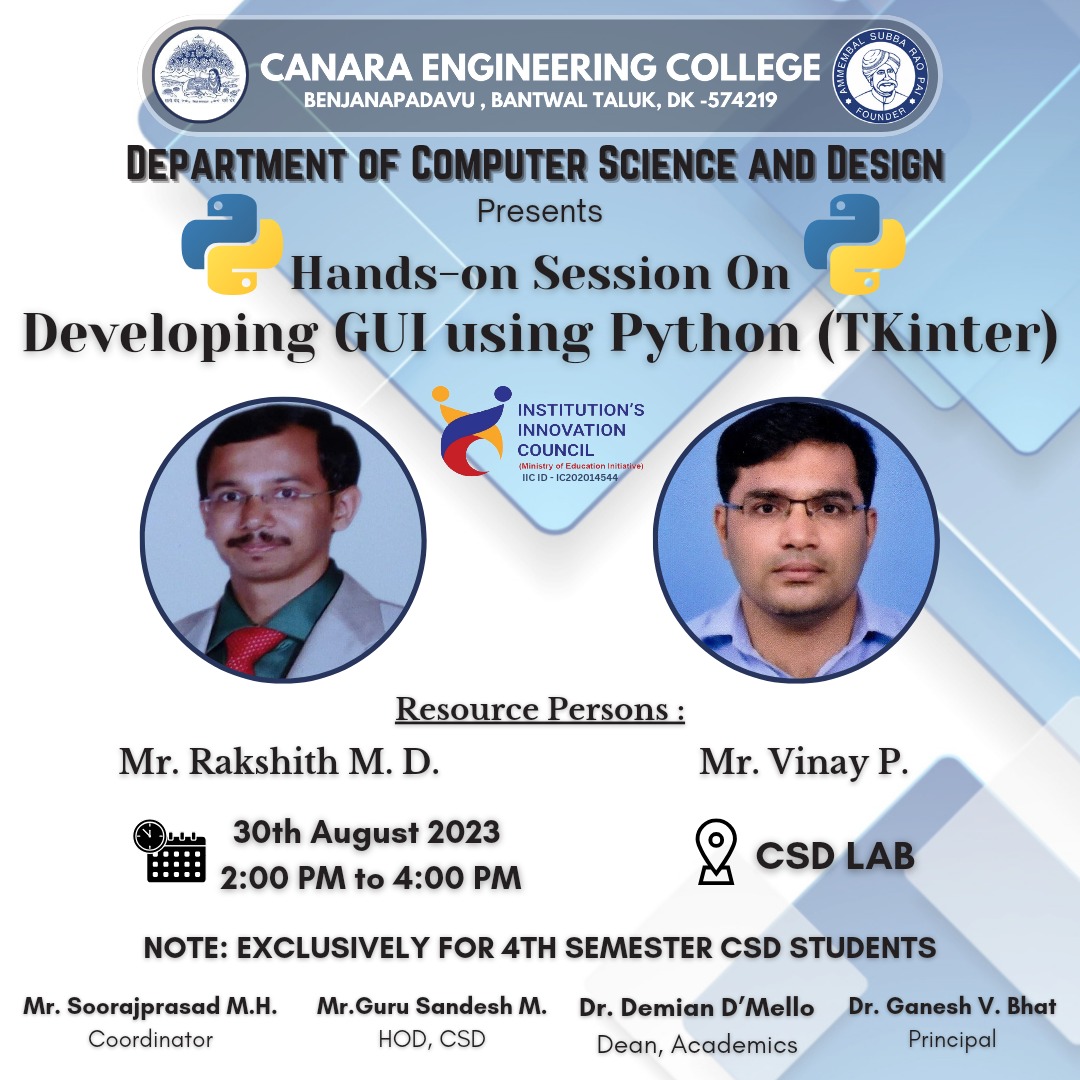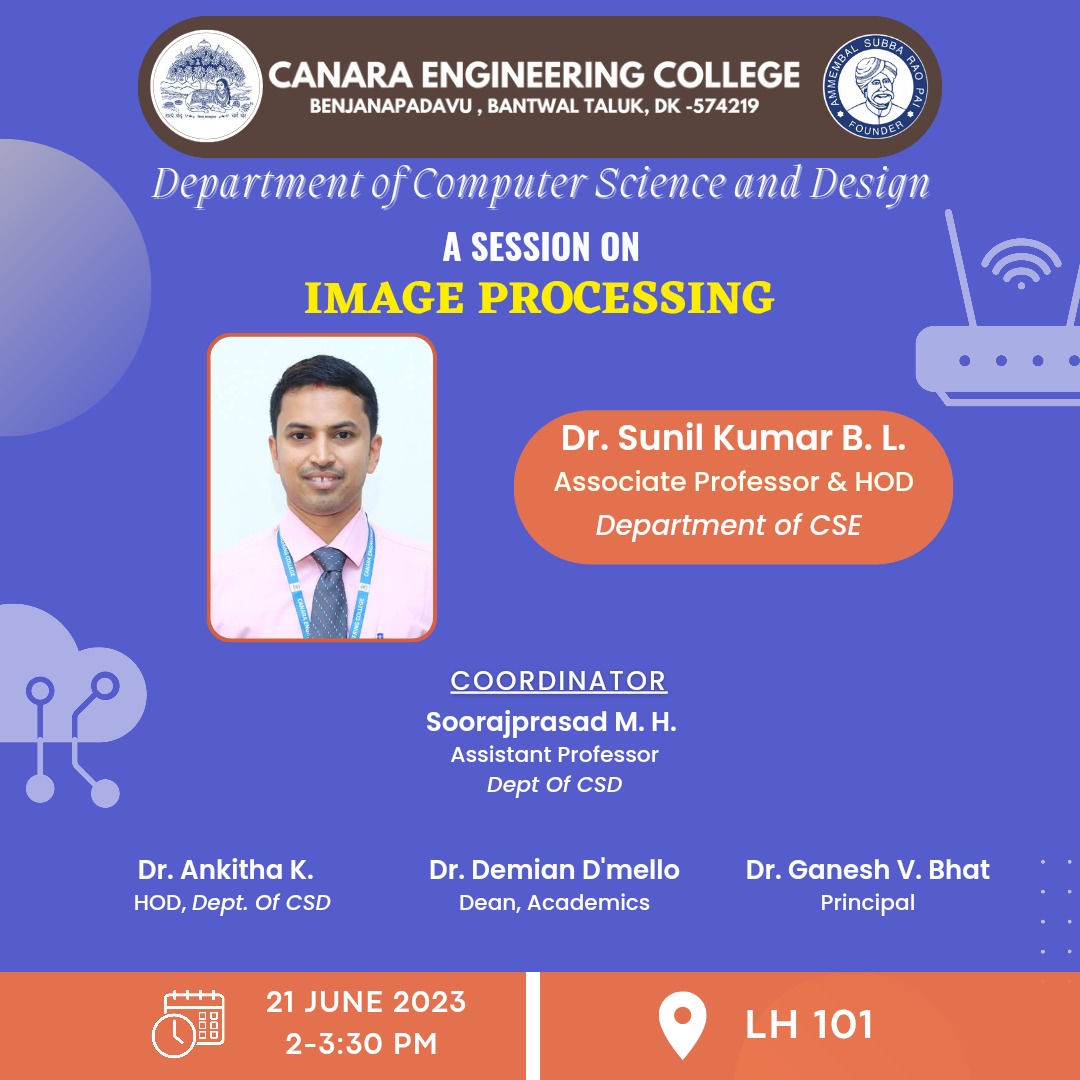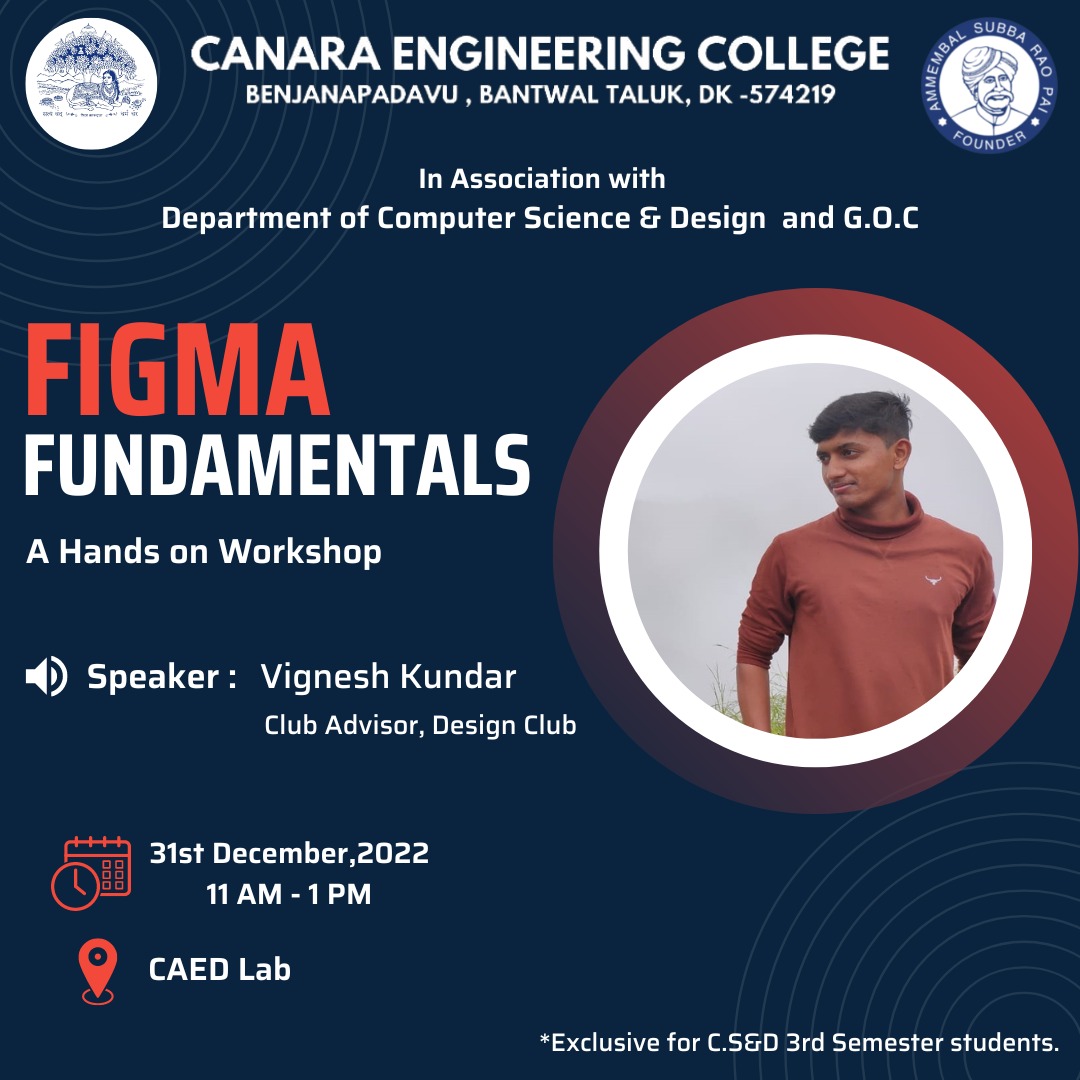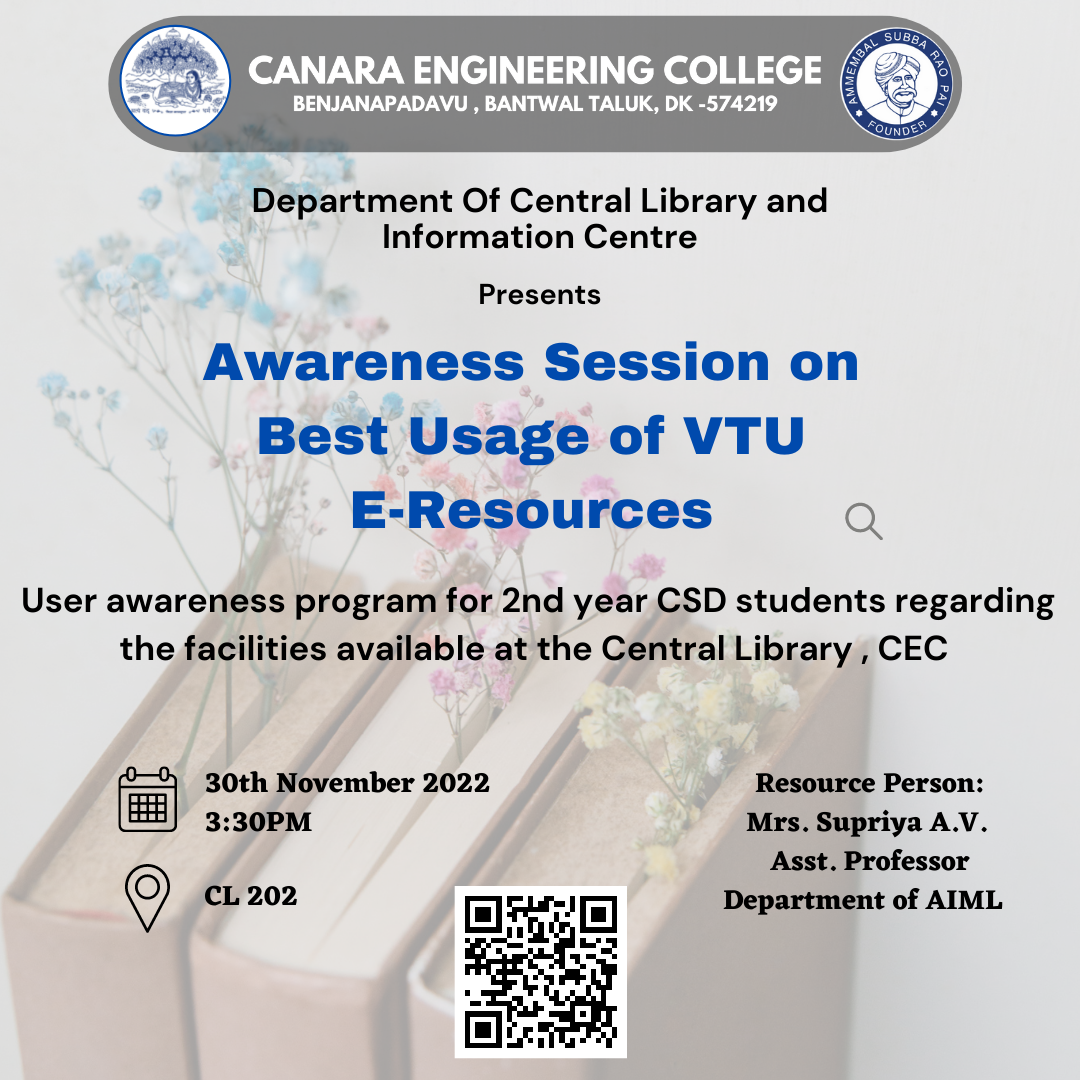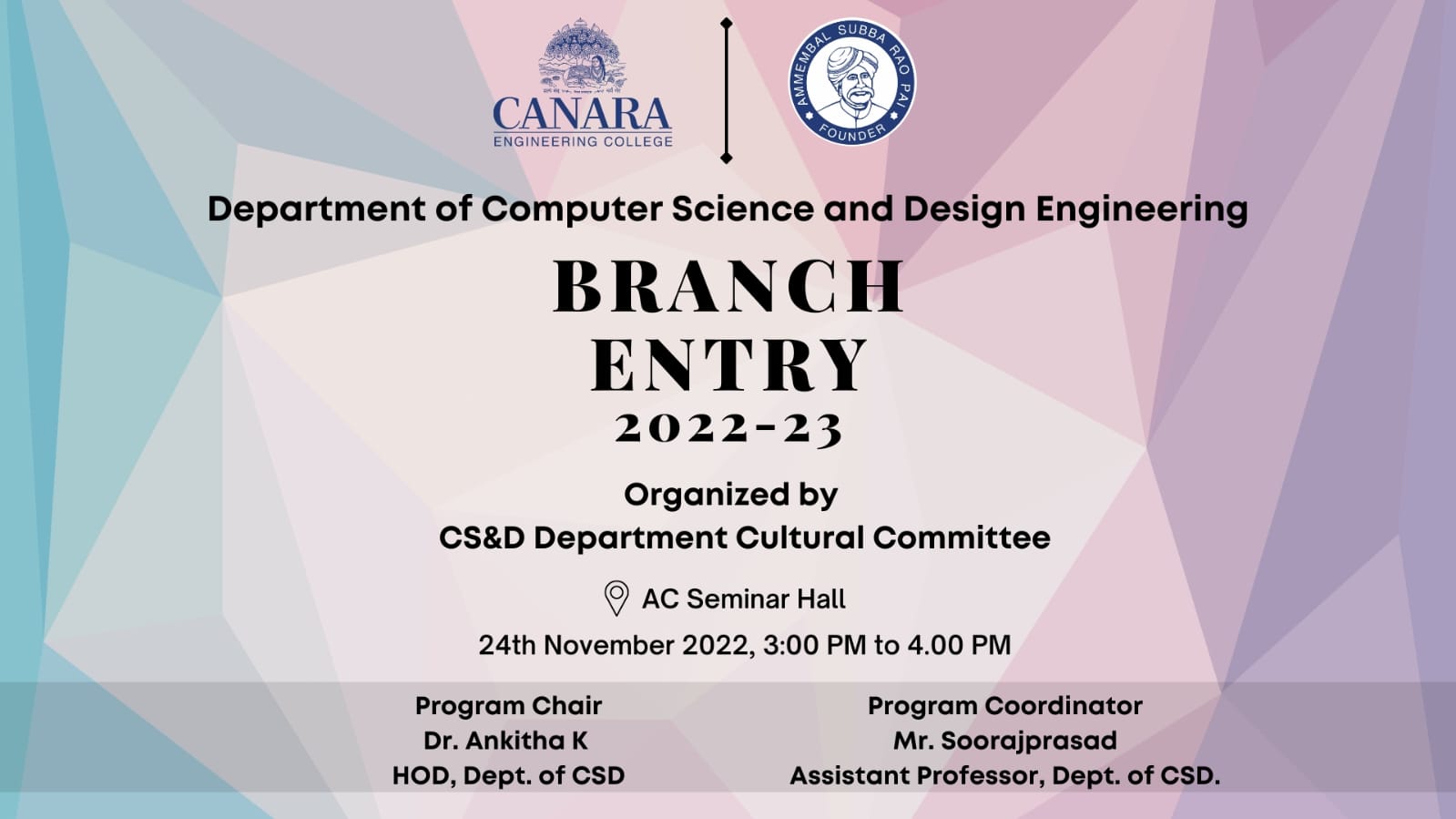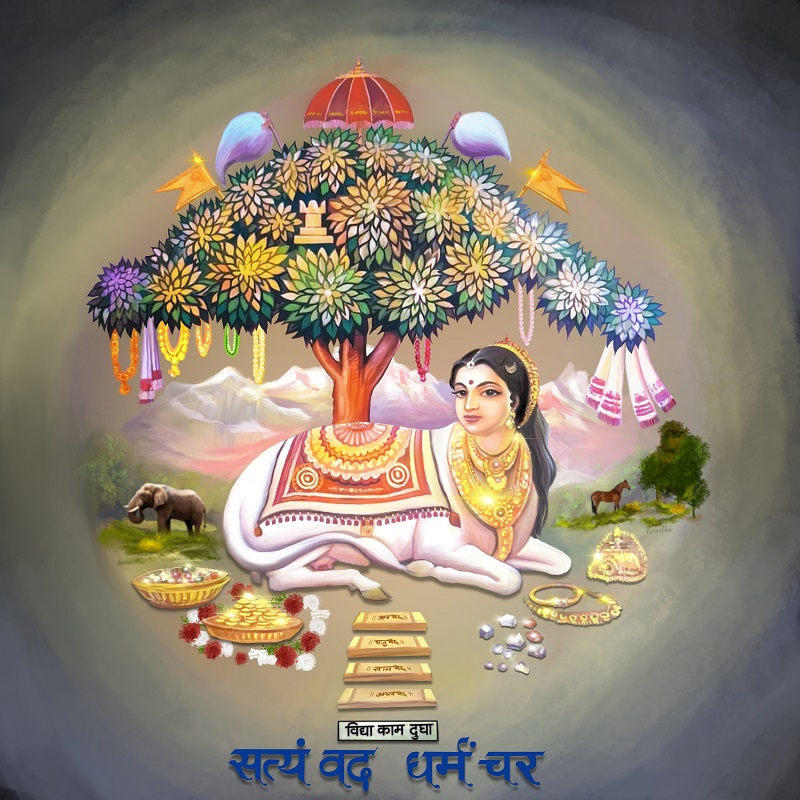VISION
To be a globally competent center in Computer Science and Design committed to produce a pool of knowledgeable engineers to extend solutions for the mankind in the field of software and design.
MISSION
- Provide the environment to become industry ready Professionals, Researchers and Entrepreneurs by offering emerging courses.
- Imparting experiential learning to gain proficiency in contemporary software and design tools to meet the current demands of the industries.
- Develop teamwork and problem-solving abilities, foster lifelong learning and instill sense of ethical and societal responsibility among students.
DEPARTMENT PROFILE
The department was started in the year 2021 to offer under graduate degree programme i.e. Bachelor of Engineering (BE) in Computer Science & Design (CS&D). The department has dedicated, qualified and experienced faculty members to guide the students in academics. The faculty members are actively involved in teaching, product development and research. The faculty members have published number of researchpapers/articles in referred International journals and reputed International conferences which are archived at IEEE, Springer-Nature and other renowned digital libraries. The faculty frequently attends staff development programmes (SDP/FDP/Seminar) to update themselves in technological advancements and conferences to present research findings.The department aims at building the students’ career by placing special emphasis on all-round development through continuous interaction with Industry. Interactive sessions with experts from academia, research laboratories and industry are constantly held so as to enable students to gain knowledge on diverse and emerging fields. The campus placement has been scaling higher and higher peaks right from its inception with multinational companies recruiting students in large numbers. To increase the opportunity of placements to students, the department conducts soft skills training programmes, technical skill development activities and initiatives on self-learning (Spoken Tutorial programmes by IIT Bombay, and Certification Courses by ICT Academy). The department brings out Bi-Annual newsletter which provides an opportunity for the students and staff to publish innovative ideas, programming tips and articles on current trends in computing and technology. The National Service Scheme (NSS) wing frequently conducts various programmes to strengthen leadership skills, teamwork, and communication; and awareness on protection of environment and social responsibilities.
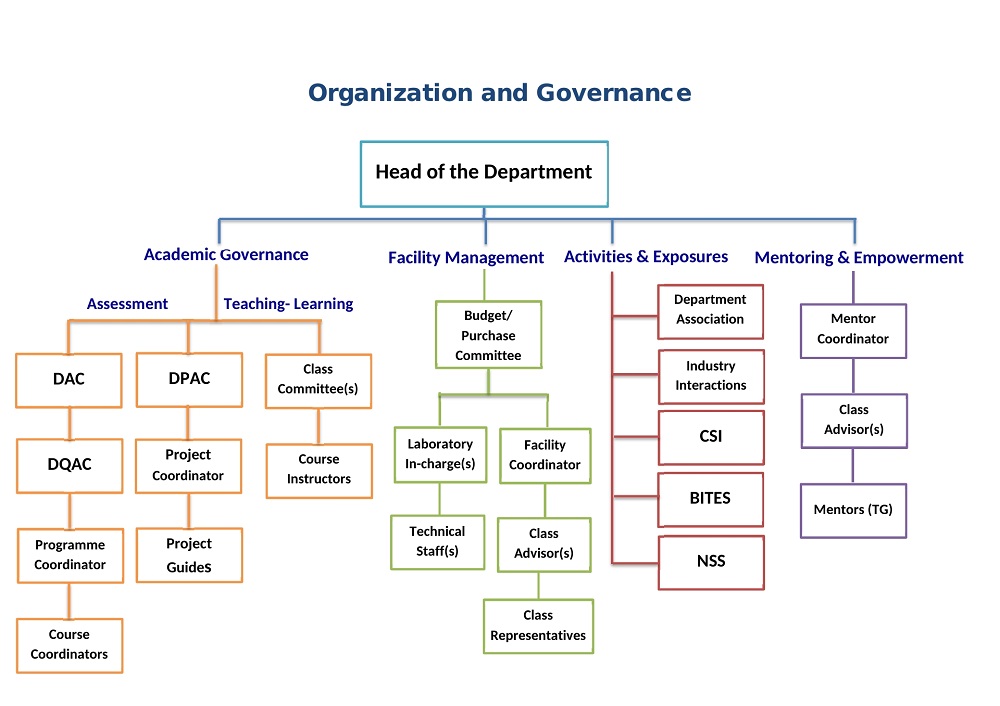
DAC: Departmental Advisory Committee
| Composition | |
|---|---|
| Head of the Department | Chairman |
| Expert from Academia | Member |
| Expert from Industry | Member |
| Project Coordinator | Member |
| Seminar Coordinator | Member |
| Four Senior Faculty Members | Member |
| Programme Coordinator | Member Secretary |
DQAC: Departmental Quality Assurance Committe
| Composition | |
|---|---|
| Head of the Department | Chairman |
| SIX Senior Faculty Members | Members |
| Programme Coordinator | Member Secretary |
Departmental Budget/Purchase Committee
| Composition | |
|---|---|
| Head of the Department | Chairman |
| Programme Coordinator | Member |
| Professional Society Coordinator | Member |
| Facility Coordinator | Member |
| Budget / Purchase Coordinator | Member Secretary |
Departmental Project Assessment Committee (DPAC)
| Composition | |
|---|---|
| Head of the Department | Chairman |
| Programme Coordinator | Member |
| Seminar Coordinator | Member |
| Research Coordinator | Member |
| Project Coordinatorr | Member Secretary |
CSI: Computer Society of India
BITES: Board for IT Education Standards
NSS: National Service Scheme
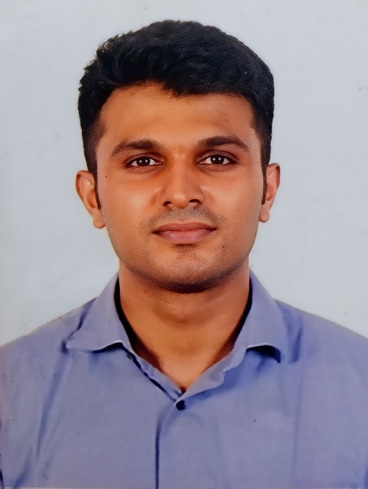
"Greetings from the department of Computer Science and Design (CS&D)."
The Department Computer Science and Design (CSD) aims to produce adaptable software developers who are experienced with emerging media technologies and design approaches as well as knowledgeable in computing approaches, tools, and technologies. Students who complete this degree are well-prepared for a wide range of employment in fields like entertainment, the arts, games, digital analytics, mobile application development, web/product design, cyber security, multimedia, and other interactive industries all over the world. The department is committed to giving students a best education and a promising future, which is supported by its upper edge teaching staff, excellent facilities, and Training & Placement Cell. We strongly promote innovation in research, education, and service to the profession, the local community, and industry. As we take the department of Computer Science & Design to new heights, I cordially invite you to join us in our endeavours. A successful academic career is my final wish for all the students and faculty.
Dr.Praahas Amin
FACULTY
TECHNICAL STAFF
Bachelor of Engineering (BE) in Computer science & Design (CS&D) programme is affiliated to Visvesvaraya Technological University (VTU), Belgaum, Karnataka. This programme is offered with a blend of theory and practical courses. This course also offered with projects and internships. These offered courses help students to cope up with the recent advancements in the computer industry. The department conducts the following bridge courses for the BE students to make them industry ready and thereby improve placement opportunities.
- Advanced Java Programming (Laboratory)
- Python Programming (Laboratory)
- Soft skills Development Courses (I - VII Semesters)
- Technical Skill Development Courses (I – VII Semesters)
- Animation and Graphics
- Game Design
Annual Intake:- 60
PROGRAMME EDUCATIONAL OBJECTIVES (PEO)
- Exhibit the knowledge and skill sets to acclimatize to the significant technical innovations and modifications in the field of computer science and design.
- Become accustomed to a corporate work atmosphere, carrying out assigned tasks with competence, and being able to keep up with new technology developments to launch start-ups and research.
- Engage in inventive work to capitalize on novel ideas for enhancing socio-economical values of the mankind.
PROGRAMME OUTCOMES (PO)
Engineering graduates in Computer Science and Design will be able to:
- Engineering knowledge: Apply knowledge of mathematics, science, engineering fundamentals and an engineering specialization to the solution of complex engineering problems
- Problem analysis: Identify, formulate, research literature and analyse complex engineering problems reaching substantiated conclusions using first principles of mathematics, natural sciences and engineering sciences
- Design/development of solutions:Design solutions for complex engineering problems and design systems, components or processes that meet specified needs with appropriate consideration for public health and safety, cultural, societal, and environmental Considerations.
- Conduct investigations of complex problems: Conduct investigations of complex problems using research-based knowledge and research methods including Design of experiments, analysis and interpretation of data, and synthesis of information to provide valid conclusions.
- Modern tool usage: Create, select and apply appropriate techniques, resources, and modern engineering and IT tools, including prediction and modelling, to complex engineering activities, with an understanding of the limitations.
- The engineer and society: Apply reasoning informed by contextual knowledge to assess societal, health, safety, legal and cultural issues and the consequent responsibilities relevant to professional engineering practice.
- Environment and Sustainability: Understand the impact of professional engineering solutions in societal and environmental contexts and demonstrate knowledge of and need for sustainable development
- Ethics: Apply ethical principles and commit to professional ethics and responsibilities and norms of engineering practice.
- Individual and team work: Function effectively as an individual, and as a member or leader in diverse teams and in multi-disciplinary settings
- Communication: Communicate effectively on complex engineering activities with the engineering community and with society at large, such as being able to comprehend and write effective reports and design documentation, make effective presentations, and give and receive clear Instructions.
- Project management and finance: Demonstrate knowledge and understanding of engineering and management principles and apply these to one’s own work, as a member and leader in a team, to manage Projects and in multidisciplinary environments.
- Life-long learning: Recognize the need for, and have the preparation and ability to engage in independent and life-long learning in the broadest context of technological change.
PROGRAMME SPECIFIC OUTCOMES (PSO)
- PSO 1: Apply designing principles and mathematical concepts to make the students well-versed with full stack applications.
- PSO 2: Design and develop computer programs/computer-based systems in various areas of Multimedia, Graphics and User Interface.
Course Outcomes(CO)
FACILITIES
The Department of Computer Science and Design is equipped with full-fledged laboratories and well-furnished classrooms with Projectors.
Data Structures and Algorithms Lab
|  |
Object Oriented Design Pattern Lab
| 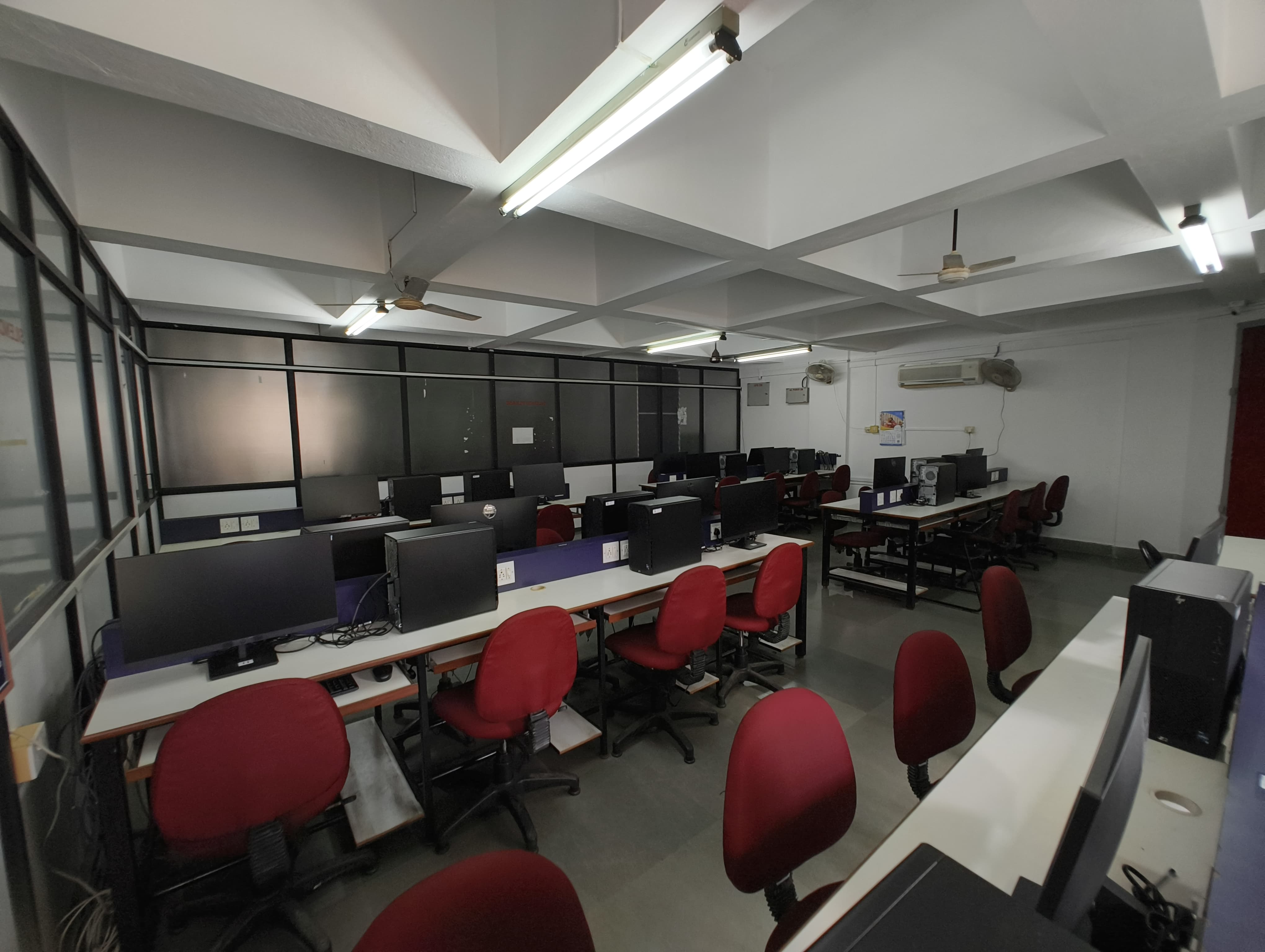 |
UI/UX Lab
| 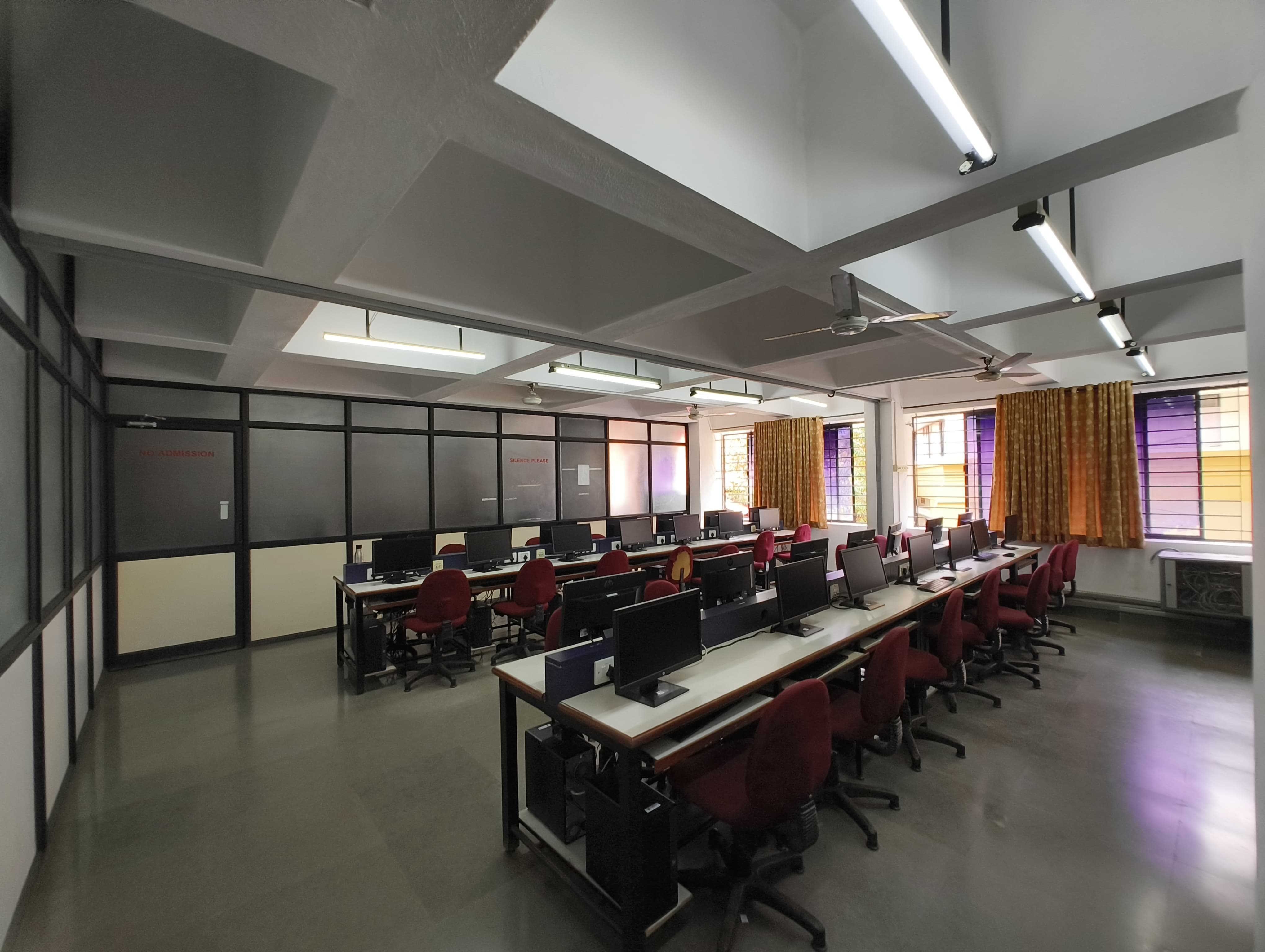 |
Full Stack Development Lab
| 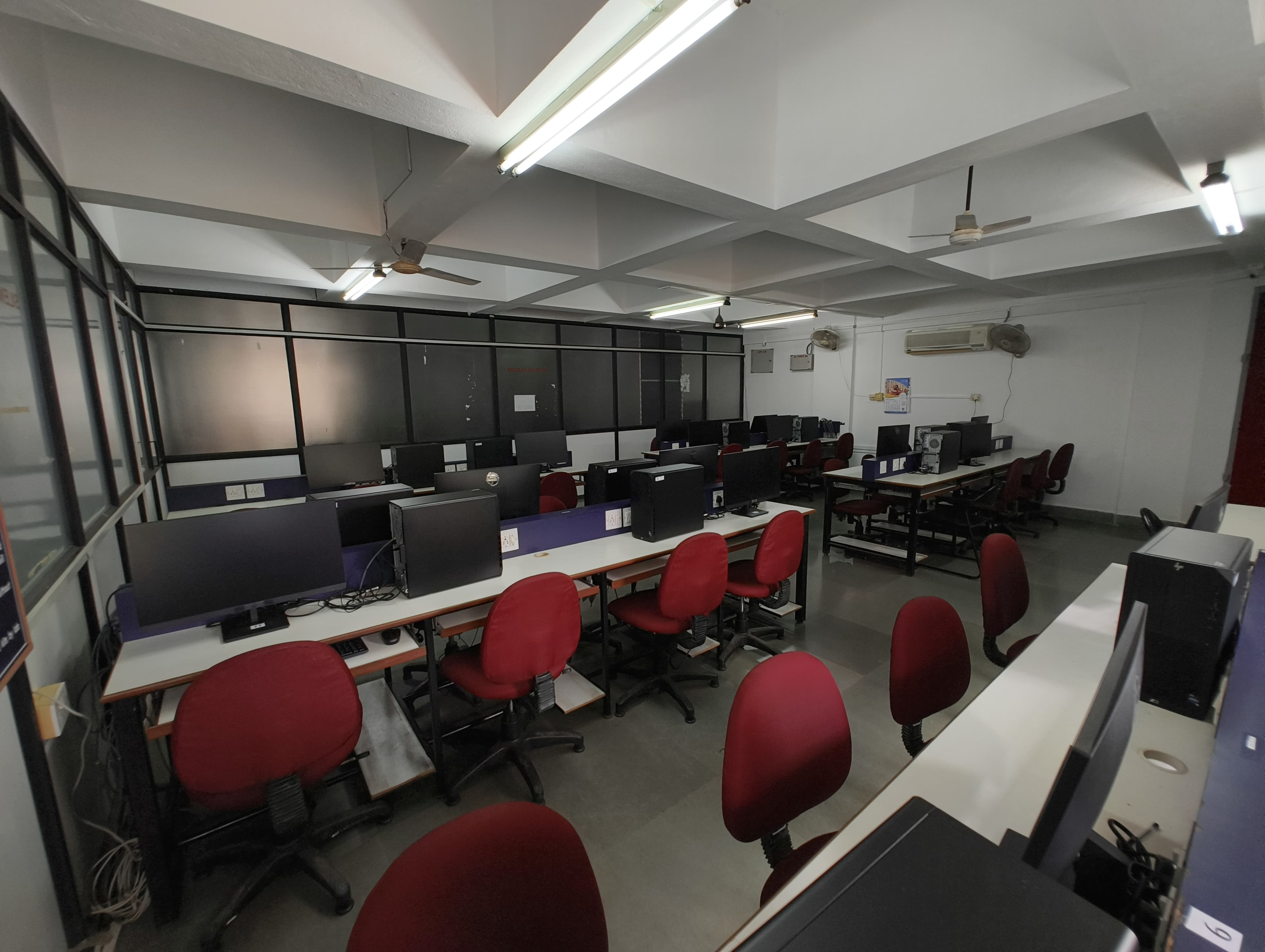 |
Robotic Process and Automation Lab
| 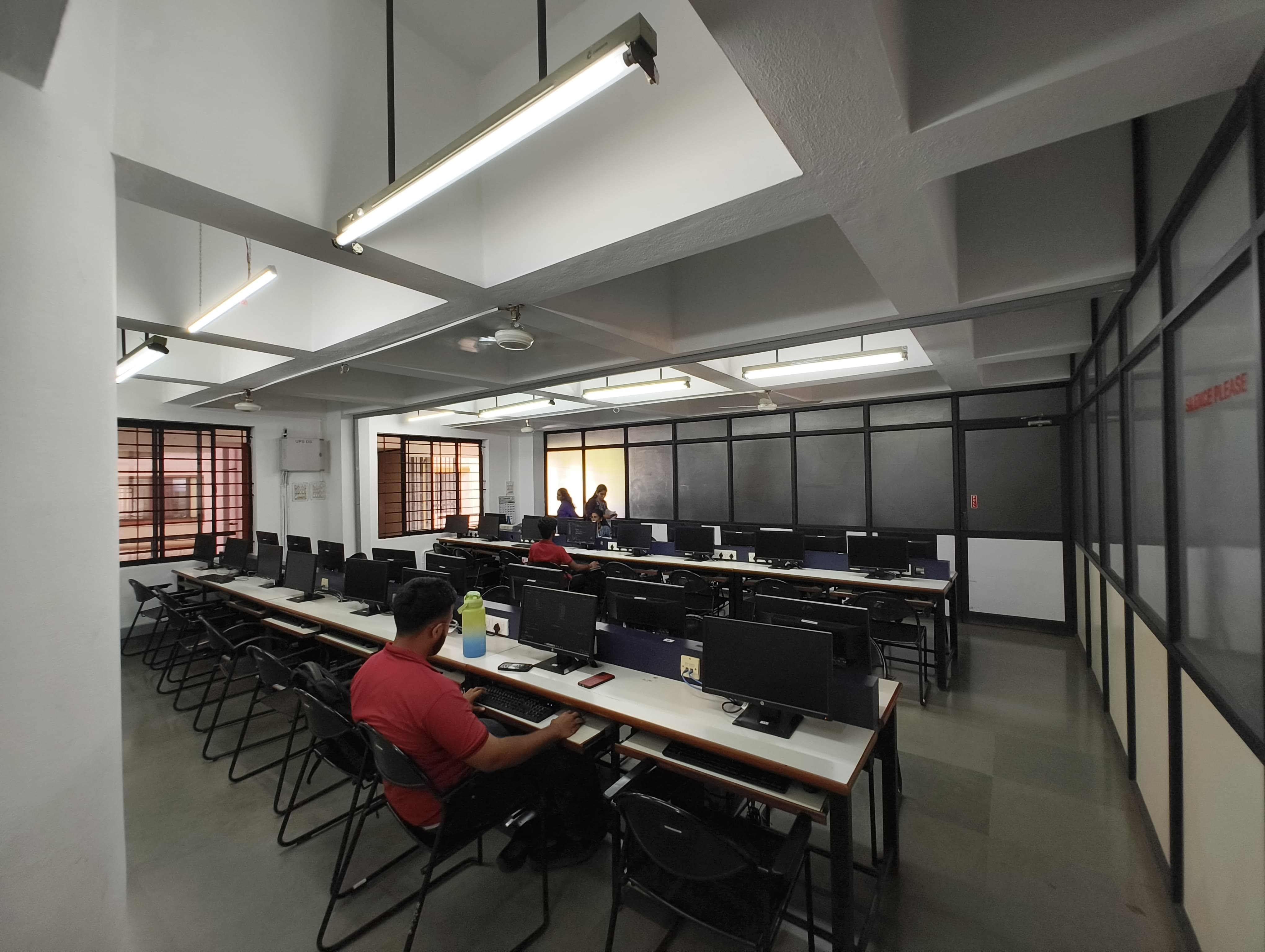 |
Department Library
|
EXAMINATION RESULTS

PARTICIPATION IN TECHNICAL EVENTS
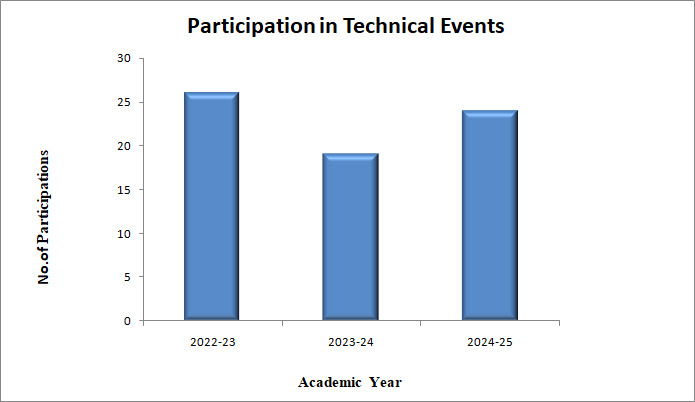 -->
-->
Research Areas
- Machine Learning
- Biomedical Signal Processing
- Data Science and Big Data Analytics
- Computer Vision & Deep Learning
PUBLICATIONS IN INTERNATIONAL CONFERENCES/JOURNALS & PATENT

FACULTY PURSUING DOCTORAL STUDIES
| Mr. Anantha Krishna Kamath |
| Mrs. Pooja N S |
| Mr. Ravishankara K |
| QuizForge- online platform development contest (14-05-2025) |
|---|
Department of Computer Science and Design in association with IIC an Geek Hub/Industry connect club organized “QuizForge – Online platform development contest” exclusively for 4th and 6th semester CSD students on 14th of May 2025. 10 teams participated and presented their design and development of platform that enables seamless creation, deployment, and evaluation of MCQ-based tests. The developed platform was user-friendly for both test creators (educators/trainers) and test-takers (students/employees), and included features to ensure fairness, engagement, and real-time analytics. The event was coordinated by Mr. Anantha Krishna Kamath, Assistant Professor, Department of CSD |
| Workshop on Protecting Intellectual Property Rights (IPR) and IP Management for Start-Ups (23-04-2025) |
The workshop aimed at imparting paper writing skills and Patent filing skills. Also, focused on technical paper writing skills. Key points about writing a survey and also technical paper were shared with the participants during the workshop. A total of 40 students participated in the workshop. |
| Programming & Problem Solving Session-2 (16-04-2025) |
The Department of Computer Science & Design, in association with IIC and Geekhub/Industry Connect, organized a Hands-on session on "Programming and Problem-Solving Session - 2" exclusively for 6th semester CS&D students on April 16, 2025, at LH 206. The session focused on algorithm-based problem-solving techniques, helping students enhance their logical thinking and coding skills through real-time practice and interactive discussions. The session was conducted by Mr. Ravishankar Kulamarva, who effectively guided the students through various algorithmic approaches and best practices in problem-solving. The event was coordinated by Mrs. Sourabha S Rai, under the guidance of Dr. Praahas Amin, HOD, Dept. of CS&D. |
| Programming and Problem-Solving Session-2 (16-04-2025) |
The Department of Computer Science & Design, in collaboration with IIC and Geekhub/Industry Connect, organized a session on “Programming and Problem-Solving Session-2” for 4th-semester CSD students on April 16, 2025. The session covered key topics such as algorithmic thinking, coding best practices, and debugging strategies. Led by Ms. Rakshitha Bhajentri, 6th sem, CS&D and coordinated by Mrs. Krathika A, Assistant Professor, CS&D Department |
| Programming & Problem Solving Session-1 (02-04-2025) |
The Department of Computer Science & Design, in association with IIC and Geekhub/Industry Connect, organized a Hands-on session on "Programming and Problem-Solving Session - 1" exclusively for 6th semester CS&D students on April 2nd, 2025, at LH 206. The session was conducted by Mrs. Sourabha S Rai, Assistant Professor, Dept. of CS&D, who guided students through various problem-solving techniques and programming concepts. The event was coordinated by Mrs. Sourabha S Rai, under the guidance of Dr. Praahas Amin, HOD, Dept. of CS&D. |
| Hands on Session onA software development project from idea to deployment (02-04-2025) |
TOPIC: Backend development with JavaScript and ExpressJS In this topic we learned how to build a simple backend using JavaScript and ExpressJS. The project focused on user authentication, where users can register and log in using a username and password. 1)Installing Packages – Students used express for the server, sqlite3 for the database, and bcrypt to hash passwords. 2)User Registration – The backend stores usernames and encrypted passwords in a database. 3)User Login – Users enter their details, and the system checks if they match the stored records. 4)Frontend Requests – The frontend communicates with the backend to send login and registration data. This gave students hands-on experience with setting up a basic authentication system using JavaScript and ExpressJS. |
| Programming & Problem Solving Session-1 (20-03-2025) |
The Department of Computer Science & Design, in association with IIC and Geekhub/Industry Connect, organized a hands-on session on "Programming and Problem-Solving Session - 1" exclusively for 4th semester CS&D students on March 20, 2025, at LH 205. The session was conducted by Mrs. Sourabha S Rai, Assistant Professor, Dept. of CS&D, who guided students through various problem-solving techniques and programming concepts. The event was coordinated by Mrs. Sourabha S Rai, under the guidance of Dr. Praahas Amin, HOD, Dept. of CS&D. |
| stress management (19-03-2025) |
A talk on Stress Management was organized by department of Computer science and Design on 19th march 2025 in association with department of student welfare, CEC Benjanapdav. This talk was organized exclusively for the 6th semester CS&D students. the talk was began by the group activity, and it was very informative, added all the points which are relevant to the life , the total of 54 students were attended the session. |
| A Software Development Project From Idea to Deployment (19-03-2025) |
TOPIC: A Software Development Project: From Idea To Deployment. Describes software development from initial idea to finished product. There are six core steps: Planning, Defining, Designing, Building, Testing, and Deployment. This informs those new to the field about how software development occurs and reminds others of what they should not do. •It begins with planning, where the objectives and plan of the project are established. •Then comes defining, which sets the functional and non-functional requirements of the software. •Designing forms the architecture and user interface of the software. •Building writes and deploys the code. •Testing makes the software free of errors and stable. •Last but not least, deployment puts the software on the market or in-house for use. By knowing these steps, developers can make sure their projects are well-delivered, executed, and completed on schedule. This gives beginners a sense of less panic and more assurance in their capacity to create software. Even seasoned developers can benefit from this reminder, preventing pitfalls and errors. |
| Stress Management (19-03-2025) |
A Talk on Stress Management was organized by the Department of Computer Science & Design on 19th March 2025 in association with Department of Student Welfare, CEC, Mangaluru. This talk was arranged exclusively for the 6th semester CS&D students. The resource person was Ms. Sandhya Poojary, Assistant Professor & Counsellor, Canara Engineering College, Mangaluru. During the session, the resource person conducted a group activity to make them learn about the different parameters involved in Stress Management techniques. A total of 54 students attended the session. |
| MetaRang (15-03-2025) |
MetaRang successfully brought together students and faculties to celebrate and discuss the future of innovation. The event inspired students to embrace research, career growth, and technological advancements. The event concluded with a heartfelt vote of thanks delivered by Ms. Mahima, appreciating the efforts of organizers, speakers, and participants. The MetaRang event left a lasting impact, reinforcing the institution’s commitment to fostering a dynamic and forward-thinking learning environment. With its resounding success, MetaRang stands as a testament to the power of collaboration and innovation in shaping the future. |
| A session on "Fostering Public Trust in Science" (08-03-2025) |
Dr Praahas Amin emphasized the importance of trust in science, distinguishing between true and false facts in critical areas such as vaccines and climate change. He highlighted the need for open Science, advocating for research that is accessible and transparent. Stressing the importance of effective Science communication, he encouraged presenting science as a story, making it engaging and relatable. He also discussed the power of social media and visual storytelling in making science more accessible. One of the most memorable moments of the session was when Dr Praahas Amin captivated the audience by showcasing stunning pictures of nebulae and comets, personally captured through his telescope in Mangalore. These breath-taking images not only highlighted the wonders of the cosmos but also underscored the role of astronomy in engaging the public with science. |
| InnoVibe (05-03-2025) |
The event commenced with a warm welcome by the host, Rakshitha Bhajentri, who set the stage for an inspiring day. The ceremony began with a prayer session, invoking divine blessings for success, followed by the ceremonial lighting of the lamp, symbolizing knowledge and enlightenment. |
| TECHNOFUSION2024 (11-12-2024) |
The project expo showcased innovative solutions and helped the students to exhibit their talents.The integration of front end and back end technologies helped for delivering the user friendly applications. |
| Techsplosion-EX 2024:Igniting Innovation, Showcasing Brilliance (10-12-2024) |
The Department of Computer Science and Design (CSD), in collaboration with the Institution’s Innovation Council (IIC), successfully organized "Techsplosion-EX 2024: Igniting Innovation, Showcasing Brilliance" on December 10, 2024. The event was scheduled from 9:00 AM to 4:30 PM and served as a platform to showcase the innovative talents of students and foster technical skill development. Inaugural Ceremony: The event commenced with an inaugural ceremony held at Seminar Hall-1 from 9:10 AM to 9:40 AM. Chief Guest: Mr. Harish Neermarga, CEO of Accolade Tech Solutions, inaugurated the event and delivered an inspiring speech on the importance of innovation and engineering in driving societal growth. Participation: A total of 16 project teams from the CSD department actively participated in the competition, showcasing their technical expertise and creativity. Project Evaluation: The project evaluation took place from 9:45 AM to 12:15 PM across the designated venues. Four judges—two external industrial experts and two internal faculty members—evaluated the projects based on innovation, technical complexity, societal impact, and presentation skills. Judges Panel External Judges: Mr. Krishna Kumar U: Architect, Cognizant Technology Solutions, Mangalore. Mr. Nagesh Shenoy A: Senior Software Engineer, Robosoft Technologies, Udupi. Internal Judges (from CEC): Mr. Arjun K: Faculty from the AIML department. Dr. Vinay P: Faculty from the CSE department. Event Coordination The event was meticulously coordinated by the department project coordinator, Mrs. Pooja N S, ensuring its seamless execution. Prizes and Recognition The Top 2 teams from the department will be awarded prizes and certificates during the upcoming College Fest as recognition for their outstanding contributions and innovative ideas. Objectives of the Event To demonstrate the role of engineers in addressing societal and environmental challenges. To enhance technical skills and foster innovation. To cultivate interpersonal, teamwork, and time management skills among participants. Outcomes Achieved Successfully demonstrated the use of modern engineering tools in solving real-world problems. Participants developed individual and interpersonal skills. Projects showcased commitment to societal and environmental responsibility. Effective time management and ethical practices were demonstrated throughout the event. |
| MoU Exchange Between Department of Computer Science and Design - Canara Engineering College and Juego Studio (01-12-2024) |
A Memorandum of Understanding was signed between Department of Computer Science and Design, Canara Engineering College and Juego Studios. This collaboration aims to bridge the gap between academia and industry through faculty and student upskilling sessions, workshops, hackathons, curriculum enrichment and innovation driven initiatives, empowering students to become industry-ready game developers. |
| Branch entry and Freshers Day (26-11-2024) |
The fresher’s day and Branch entry was filled with excitement, joy, music, enthusiasm, laughter and happiness. It is the day where seniors and juniors finally bond and unite to celebrate being part of the college. Students were welcomed with the so much of enthusiasm. |
| Exposure Visit to Incubation Units and CoEs (23-11-2024) |
Department of CSD in association with IEEE student branch and IIC had industrial visit to Manipal incubation center for 3rd semester, “Exploring options for Entrepreneurship-discussion with startup eco system enablers and for SOIS lab, Innovation Centre and Cybersecurity center at MAHE. Students gained insights into how incubator centers operate, including the resources they provide, such as mentorship, funding opportunities, office space, start up and networking. Students had a enriching experience, offering valuable insights into the forefront of technological and scientific development. |
| Time Management (30-10-2024) |
A Talk on Time Management was organized by the Department of Computer Science & Design for the 3rd semester students on 30th October 2024 in association with Department of Student Welfare, CEC, Mangaluru. This talk was arranged exclusively for the 3rd semester CS&D students. The resource person was Ms. Sandhya Poojary, Assistant Professor & Counsellor, Canara Engineering College, Mangaluru. During the session, the resource person conducted a group activity to make them learn about the different parameters involved in time management techniques. A total of 32 students attended the session. |
| Ayudha Pooja (26-10-2024) |
On the day of Ayudha Pooja, a designated area within the college campus is set up for the Puja ceremony. Faculty members, students, and staff gather to participate in the rituals, which are conducted by a priest . Mantras and prayers are recited, invoking the blessings of the divine for wisdom, knowledge, and success in academic |
| Fundamentals of Latex:Beginner's Workshop (23-10-2024) |
Latex is a typesetting system widely used for academic and technical documents due to its powerful handling of complex mathematical formulas, scientific notations, and references. It allows users to focus on content while LaTeX handles the formatting, making it ideal for students preparing reports, theses, and papers. |
| Digital Logic Design (09-10-2024) |
The students were briefed about fundamentals of logic design and its necessity in computing systems. Design of components of ALU such as construction of 4-bit adder using full adders and half adders was demonstrated. Students were briefed about conversion of number systems. The resource person addressed the students about benefits of digitization and its impact on electronic systems. |
| Exploring Robotic Process Automation using UI path Studio (25-09-2024) |
The event “Exploring Robotic Process Automation using UiPath Studio” was an insightful session aimed at introducing participants to the fundamentals of RPA. Attendees learned how to design and implement automation processes using UiPath Studio, a leading RPA tool. The workshop covered key concepts such as creating workflows, using activities. The event concluded with a Q&A session, allowing attendees to clarify their doubts and explore advanced features of UiPath Studio. |
| 3D Modelling using Blender (04-09-2024) |
The Session covered basics and fundamentals of Blender, the User Interface of the software and the different features of the tools. Students were briefed about 3D Sculpting, Textures etc. They were given inputs about opportunities available in the niche domain of 3D Modelling and how upskilling with Blender can open up opportunities in Game Development, Architecture Visualization, and VFX and CGI. |
| INTRODUCTION TO DATA SCIENCE (28-08-2024) |
Data science is a powerful tool for decision-making and driving innovation. It blends advanced techniques with domain-specific knowledge to uncover hidden patterns in data, enabling more informed, efficient, and strategic decisions. |
| Talk on Astrophotograhpy - In Commemoration of National Space Day (21-08-2024) |
In commemoration of National Space Day, a talk on Astrophotography was organized by the Department of Computer Science and Design in Association with IIC and Geekhub and Industry Connect Club. The resource person introduced the concepts of Astronomy and Astro-Imaging. Students were given an insight into different equipment used for astro-imaging. Students were briefed about concepts of Astroimaging such as Stacking, Light Frames & Callibration Frames, Signal to Noise Ratio. Participants were briefed about different types of Deep Sky Objects and how to choose different filters for imaging them in the city when faced with Light Pollution. Participants were shown different images of Deep Sky Objects, Galaxies and Lunar Surface which was captured from within the city to inspire an interest in Astronomy and Space Sciences. |
| TECHNOFUSION 2024 (19-07-2024) |
The project expo showcased innovative solutions and helped the students to exhibit their talents.The integration of front end and back end technologies helped for delivering the user friendly applications. |
| session on achieving value proposition fit and business fit (13-07-2024) |
The speaker emphasized the importance of aligning a products value proposition with the needs and desires of the target market.Through engaging real-life examples,students learned how successful companies have effectively identified and addressed customer pain points,creating products that resonate deeply with their audience. |
| Talk on 'Bridging the Gap: from class room to Industry' (03-07-2024) |
Session to bridge the gap between the classroom and industry was held by computer science and design department on 3rd July , 2024 The session began with a welcome address acknowledging the presence of esteemed dignitaries, including Dr. Praahas Amin, Head of the Computer Science and Design Department. The keynote speaker, Me. Shreesha Kulkarni who is an alumni of Canara Engineering College and an experienced software engineer, provided an in-depth discussion on essential requirements for students aspiring to enter the IT field. This included a focus on foundational skills such as programming, problem-solving, and continuous learning. The speaker also explored various job opportunities available to graduates of Computer Science and Design Engineering, covering roles in software development, data analytics, and other emerging fields within the tech industry. Additionally, the session included practical problem-solving exercises focused on logic building, emphasizing its critical role in software development. The speaker demonstrated how strong logical thinking skills are essential for effectively addressing and solving complex problems in real-world scenarios. These exercises helped students understand the importance of developing robust analytical skills to succeed in the IT field. The session concluded with a token of gratitude presented to the speaker by Mr. Anantha Krishna Kamath, followed by a vote of thanks . Overall, the session successfully bridged the gap between classroom knowledge and real-world scenarios, offering valuable insights and inspiration to the 4th and 6th semester students of computer science and design department. The event is Coordinated by Mr. Anantha Krishna Kamath, Alumni Coordinator and Ms. Chathura V Karadesai, IIC Coordinator |
| INDUSTRIAL VISIT TO SKILL LABS AT COMED KARES INNOVATION CENTRE (25-06-2024) |
The ComEd KARES Innovation Center is an example of how utilities can promote renewable energy adoption and sustainability through innovation, education, and community involvement. |
| Android Development For Industrial Applications Using JAVA (22-06-2024) |
One day workshop on Android Development For Industrial Applications Using JAVA was orgainsed by department of computer science and desgin in association with IIC and Alumini Cell, CEC on 22-06-24.The event was coordinated by Mrs Chatura V Karadesai-IIC Coordinator and Mr Anantha Krishna Kamath-Alumni Coordinator of the department.More than 100 students fromsecond year and third year of CSD depatment participated in the event. During the workshop, participants had the opportunity to delve into the essentials of Android app creation, gaining practical insights into coding, UI/UX design principles, and integration of essential features. The workshop not only equipped students with technical skills but also inspired them to explore the limitless possibilities within Android development. |
| Industrial Visit (21-06-2024) |
Department of CSD in assoication with IEEE student branch and IIC had industrial visit to Manipal incubation centre for 4th sem, “Exploring options for Entrepreneurship-discussion with startup eco system enablers and 6th sem for SOIS lab,Innovation Centre and Cybersecurity cantre at MAHE. Students gained insights into how incubator centres operate, including the resources they provide, such as mentorship, funding opportunities, office space, start up and networking .Students had a enriching experience, offering valuable insights into the forefront of technological and scientific development. link:https://www.linkedin.com/posts/canara-engineering-college-official_the-department-of-computer-science-and-design-activity-7211585021315284992-6flo,Instagram link:https://www.instagram.com/p/C8ta9i8IH07/?igsh=MW5rNHczaHlnYmxlbg== |
| Development of Machine Learning Projects (05-06-2024) |
Department of Computer Science and Desgin in association with IIC had a talk on Development of Machine Learning Projects.Nearly 50 students participated in the talk. The session was conducted hands on and students learnt the machine learning concepts which helped them for insights of projects.Machine learning projects require a blend of domain knowledge, statistical skills, and technical expertise, involving iterative processes and continuous learning to achieve optimal results. |
| Skill Development Course on TECHNICAL WRITING USING LATEX (03-05-2024) |
Technical Writing using Latex course is conducted as a Skill Development Course for Vi semester Computer Science and Design branch students. This program LaTex benefited 62 students is the powerful typesetting system widely used in academia, research and in industry. LaTex offers unparalleled control over document formatting, making it ideal to produce technical and scientific documents such as research papers, project reports and presentations. Through the set of experiments, students will develop the skills and confidence needed to create polished technical documents efficiently and effectively. |
| Celebrating Youth,changemaker's contribution in innvation and entrepreneurship (17-01-2024) |
He spoke about renewable energy systems and its importance in present and upcoming future and the role of green energy for sustainable future.He motivated students about upskilling and role entrepreneurship in nation building.Being an alumni he emphasized on the utilization of time during college days in upgrading in one’s self with the example of his own life. |
| My Story- Motivational sesssion by successful innovator (06-12-2023) |
Mr. Prajwal Kumar shared his journey of exploration and creation, motivated the students to embrace the spirit of innovation, transform the challenges into opportunities and push all the boundaries. The session highlighted stories of some of the greatest innovators like Elon Musk, the visionary behind companies like Tesla, SpaceX and snippets from the movie “October Sky” which depicted passion for scientific exploration and innovation. A total of 171 students participated in the event. |
| Session on problem solving and ideation workshop (29-11-2023) |
The Talk on Entrepreneurship Career and Opportunities was conducted at Canara Engineering College under the banner of IIC. The talk was conducted by Dr. Praahas Amin, Associate Professor and HOD Department of Computer Science and Design, Canara Engineering College, Benjanapadavu.He is a Managing Director at Flashflow Technologies OPC Pvt. Ltd. Mangalore. The resource person briefed the students about What is Entrepreneurship, What are the different ways of coming up with Business Ideas, What are the different Business Models and How to evaluate business idea. He also shared his experiences in starting up a business. Students were briefed about The different components of a Business Idea, different quadrants of innovation such as procurement, Product/Service, Delivery and Promotion and the different types of innovation such as price, convenience, speed, quality and self expression. He also told importance of hobbies, passion, skills and experience in coming up with a business idea. He also spoke about different type of ideas that could become businesses. Different Business Models such as SAAS, Subscription membership and marketplace were explained. Finally the students were briefed about how to evaluate and idea based on Matching Fit, Rating Pain Points and Payment, Sustainability and Unfair Advantages. Types of market such as Red Ocean and Blue Ocean were also explained to the students. |
| Branch entry 2023 (17-11-2023) |
The Branch Entry program was organized by the Central Arts and Cultural department of CEC on 17/11/2023 at the Open Air Auditorium. Principal Dr.Nagesh H R inaugurated the event. 26 students from the second year CSD class participated in the event. The students performed Skit and dance on the theme "Life is a Movie". Ms. Mahima served as MC of the program. |
| Ayudha Pooja (31-10-2023) |
Department of Computer Science and Design in association with the college cultural committee celebrated Ayudha Pooja on 31/10/2023. Labs were decorated by the students. Principal, HODs of various departments, students, staff and faculty members of the department were present during the celebration. |
| Developing GUI using Python (TKinter) (30-08-2023) |
Objectives of the activity To develop GUI using Python Tkinter. Benefit in terms of learning skill/ knowledge obtained At the end able to develop several partly-functional applications. Able develop layouts by using different frames and canvas. Styling widgets by using styling options and configuring the root widget. Overall report of the activity Topics discussed were the advantages and applications of the Python Programming Language, the creation of buttons, frames, and canvas, developing calculator applications, and developing an image viewer. Resource person thought the various components of GUI programming with Tkinter. |
| A session on Image Processing (21-06-2023) |
Dr. Sunil Kumar B L gave an brief introduction about image processing and techniques used in image processing to the students of IV semester CSD. 60 students benefited from this session. |
| FIGMA fundamentals a handson workshop (31-12-2022) |
A Figma Fundamentals workshop was held for students of the Computer Science and Design branch by Mr. Vignesh Kunder, Club Advisor, Design Club, on December 31, 2022. The workshop was attended by 60 students and aimed to provide an introduction to Figma, a popular collaborative design tool. The workshop began with a brief overview of Figma's capabilities and its place in the design industry. Students were then guided through the basics of the Figma interface and shown how to create and edit simple designs. The workshop also covered topics such as working with layers, using vector graphics, and collaborating with team members in Figma. |
| An Awareness Session on Best Usage of VTU E-Resources (30-11-2022) |
The Department of Central Library and Information Center conducted “An Awareness Session on Best Usage of VTU E-Resources” on 30/11/2022 for second year students of Computer Science and Design. Mrs. Supriya A V, Assistant Professor, Department of Artificial Intelligence and Machine Learning, spoke about the facilities available at the college central library, benefits of VTU e-resource usage during research, paper publication and project report preparation. The students were shown a demonstration of a remote access solution that is specifically designed for effective access of digital content subscribed by VTU Consortium such as e- journals, e-books, articles from various publishers Springer Nature , Taylor and Francis, Elsevier /Science Direct, IEEE POP, Emerald, McGraw Hill and Turnitin Online Plagiarism Check Tool, Lanquill(Sententia) Netanalytiks Grammar Tool. |
| CSD Branch entry (24-11-2022) |
Computer Science and Design Branch Entry program was organized by the department cultural committee on 24th November 2022 in the AC Seminar Hall. The program was coordinated by Mr. Soorajprasad, Assistant Professor and Chaired by Dr. Ankitha K, HOD, Department of CSD. Dr. Ankithas K, Head of the Department of Computer Science and Design addressed the second-year students and spoke about the department’s Vision, Mission, Opportunities in the field of CS&D. Here is a glimpse. |

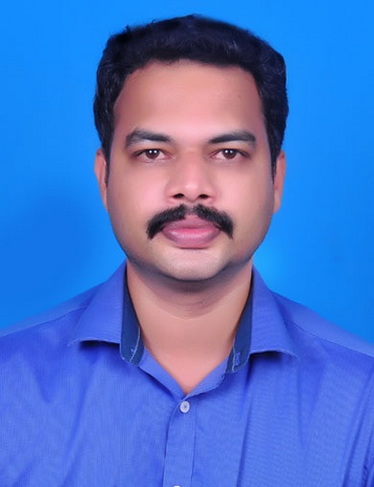
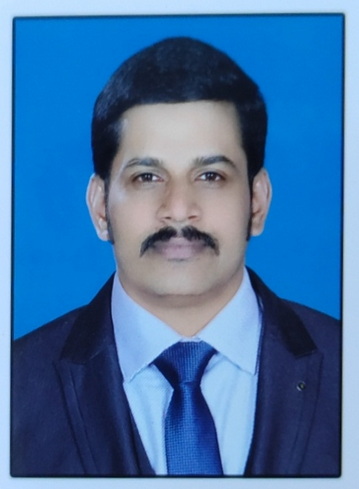
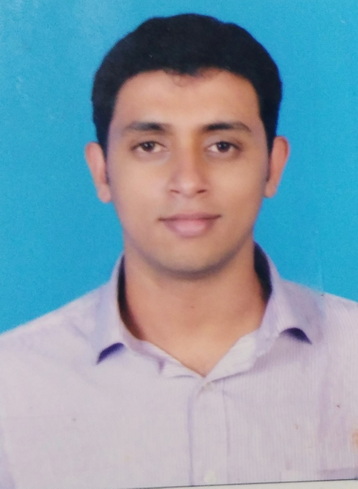
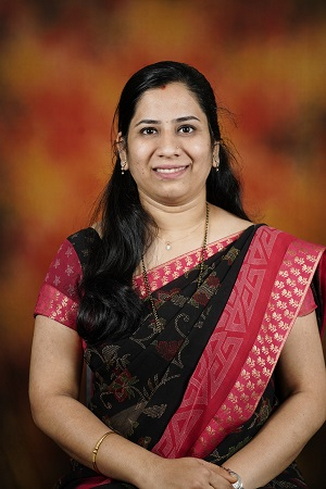
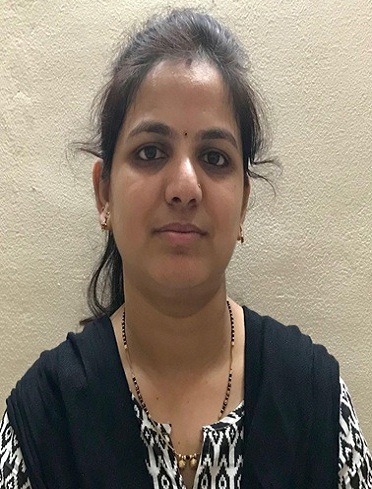
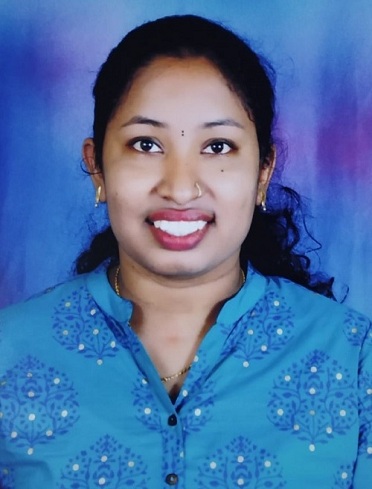
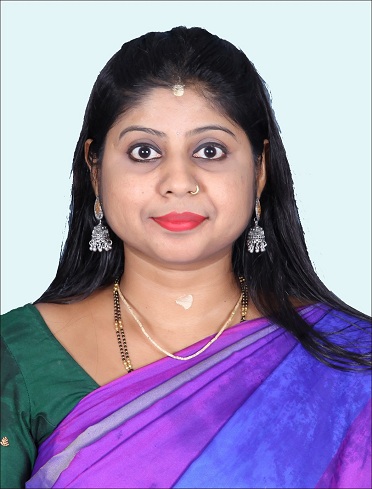
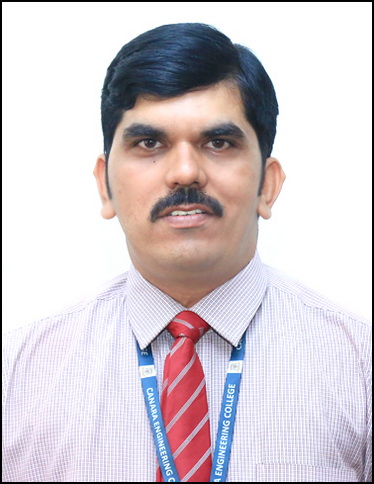
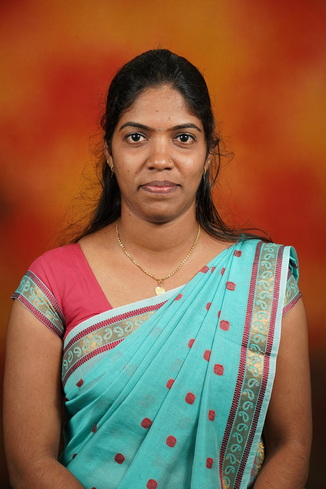
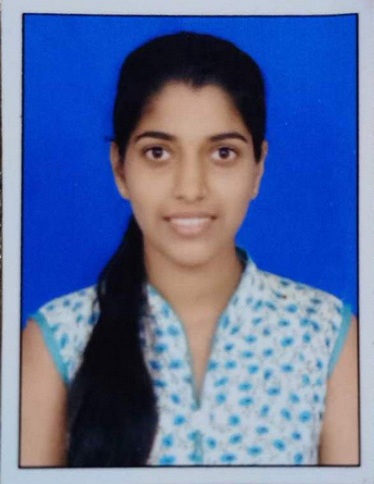
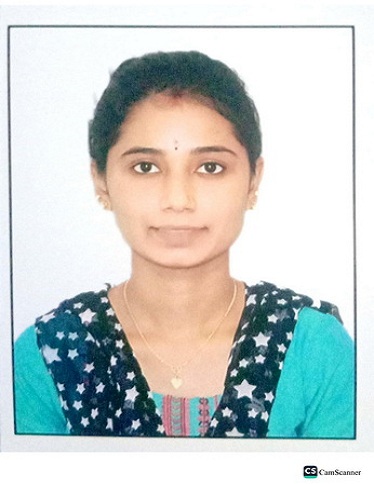
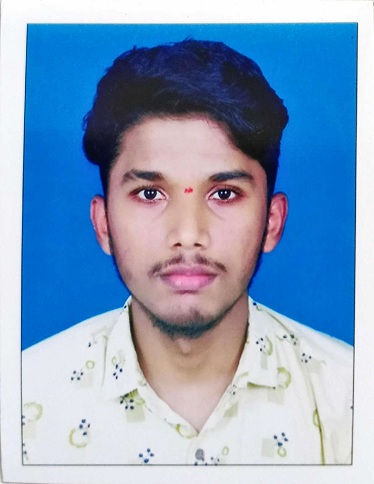
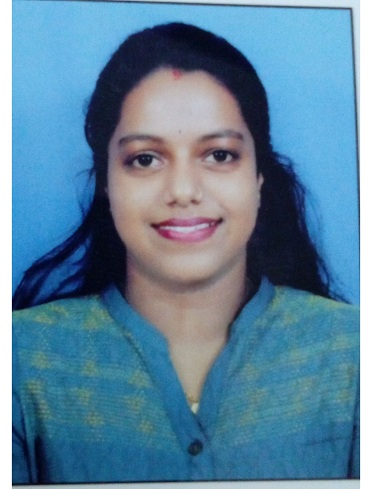
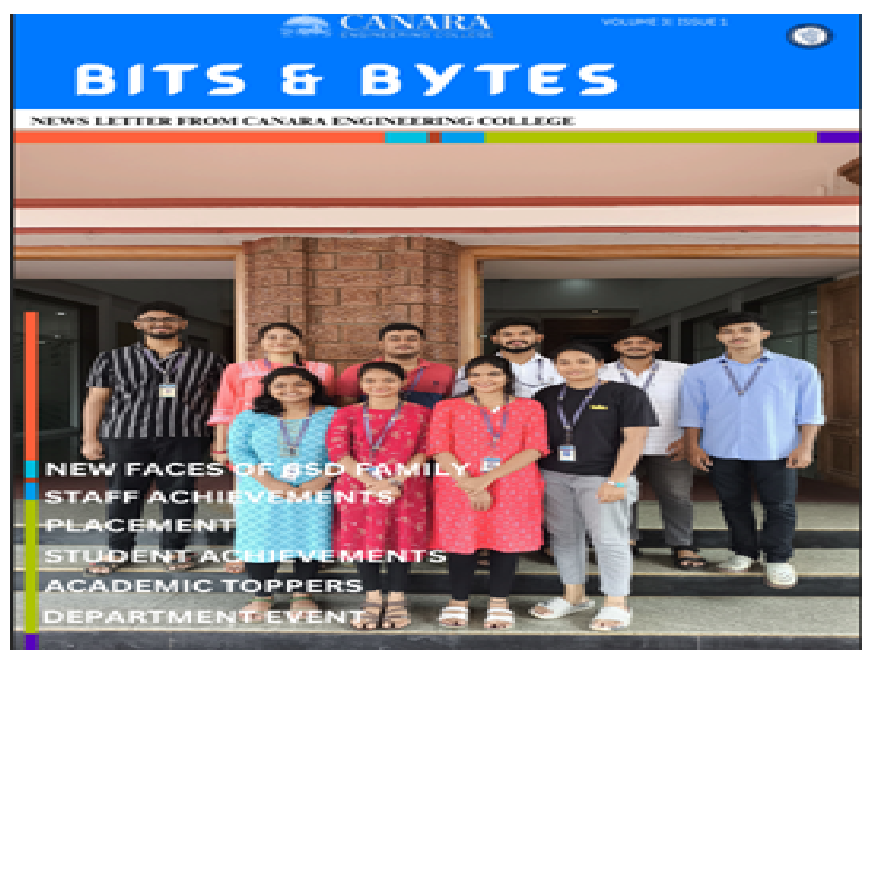
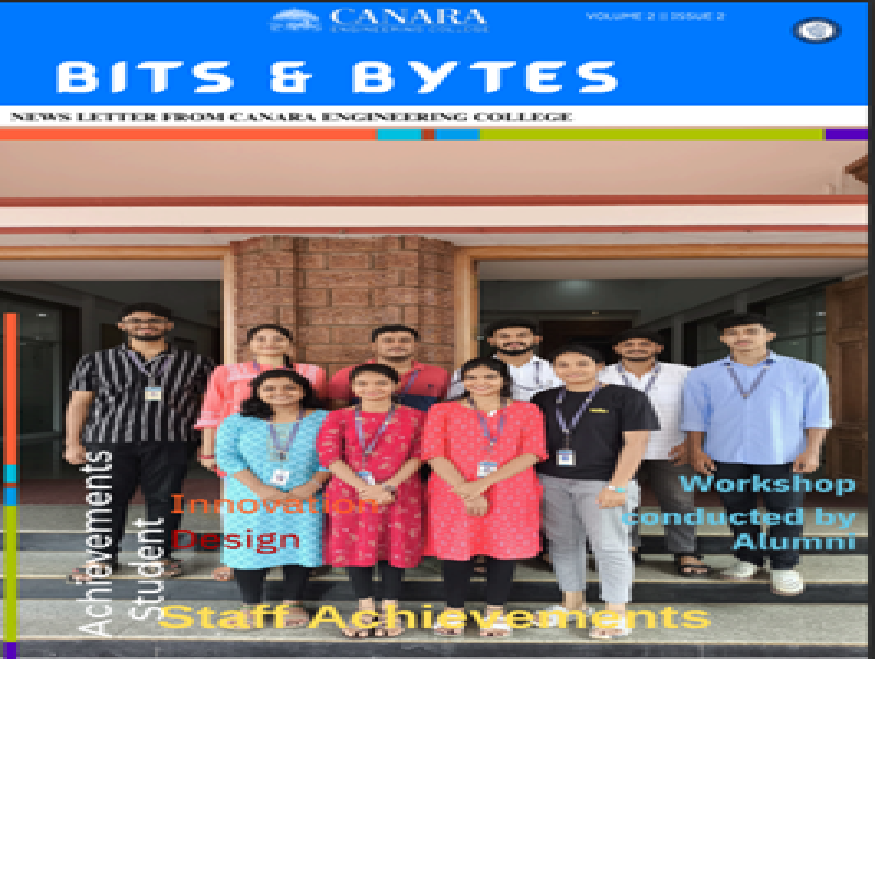
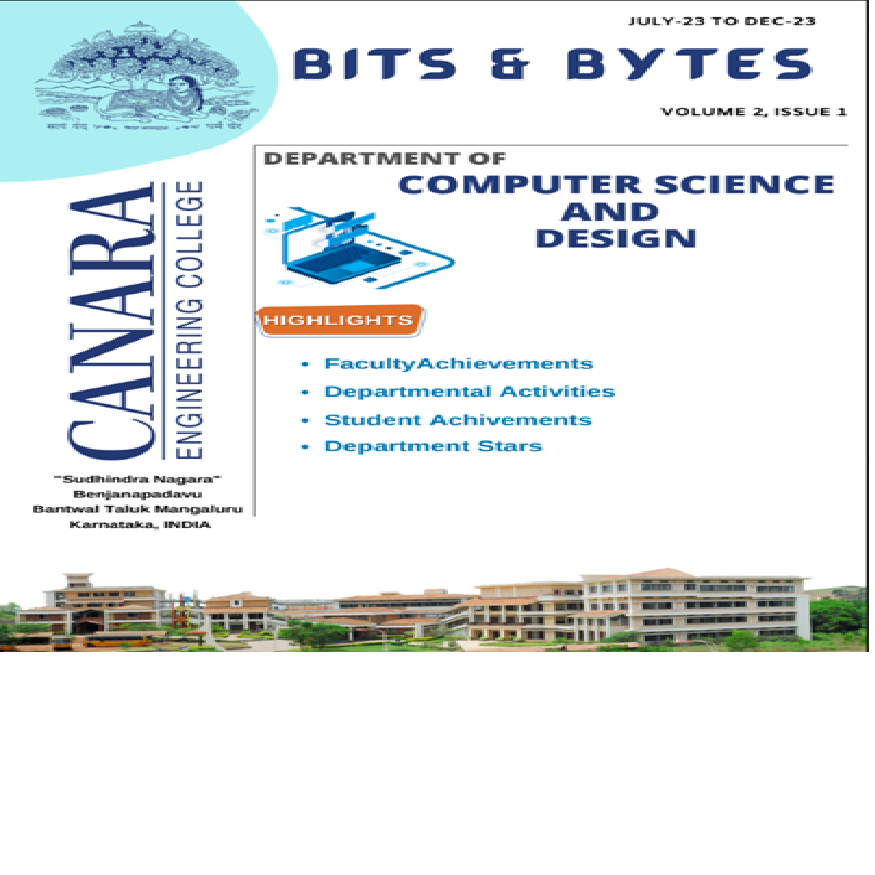

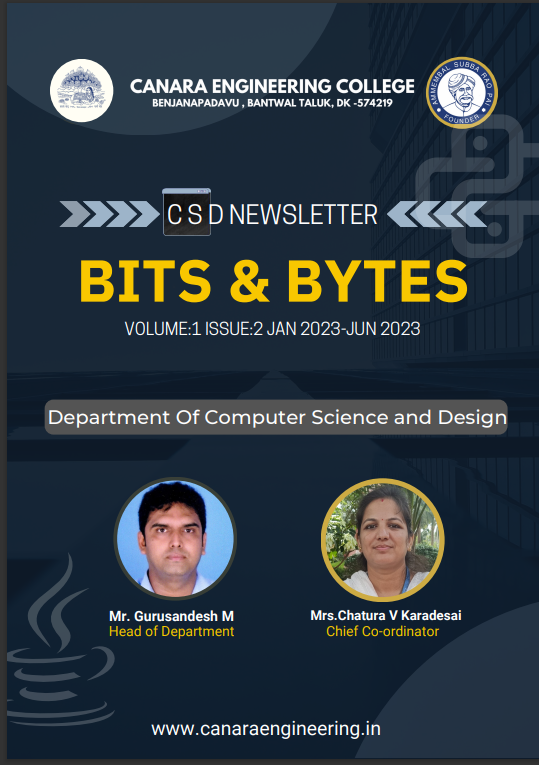
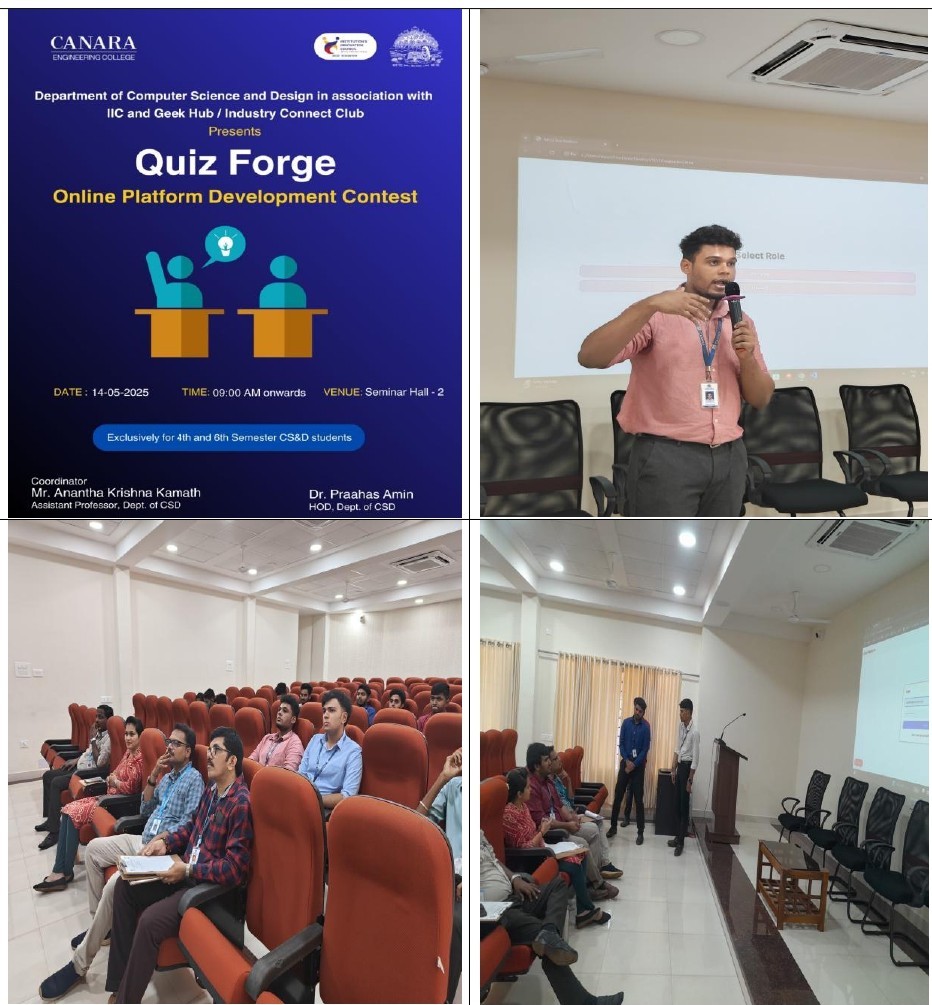
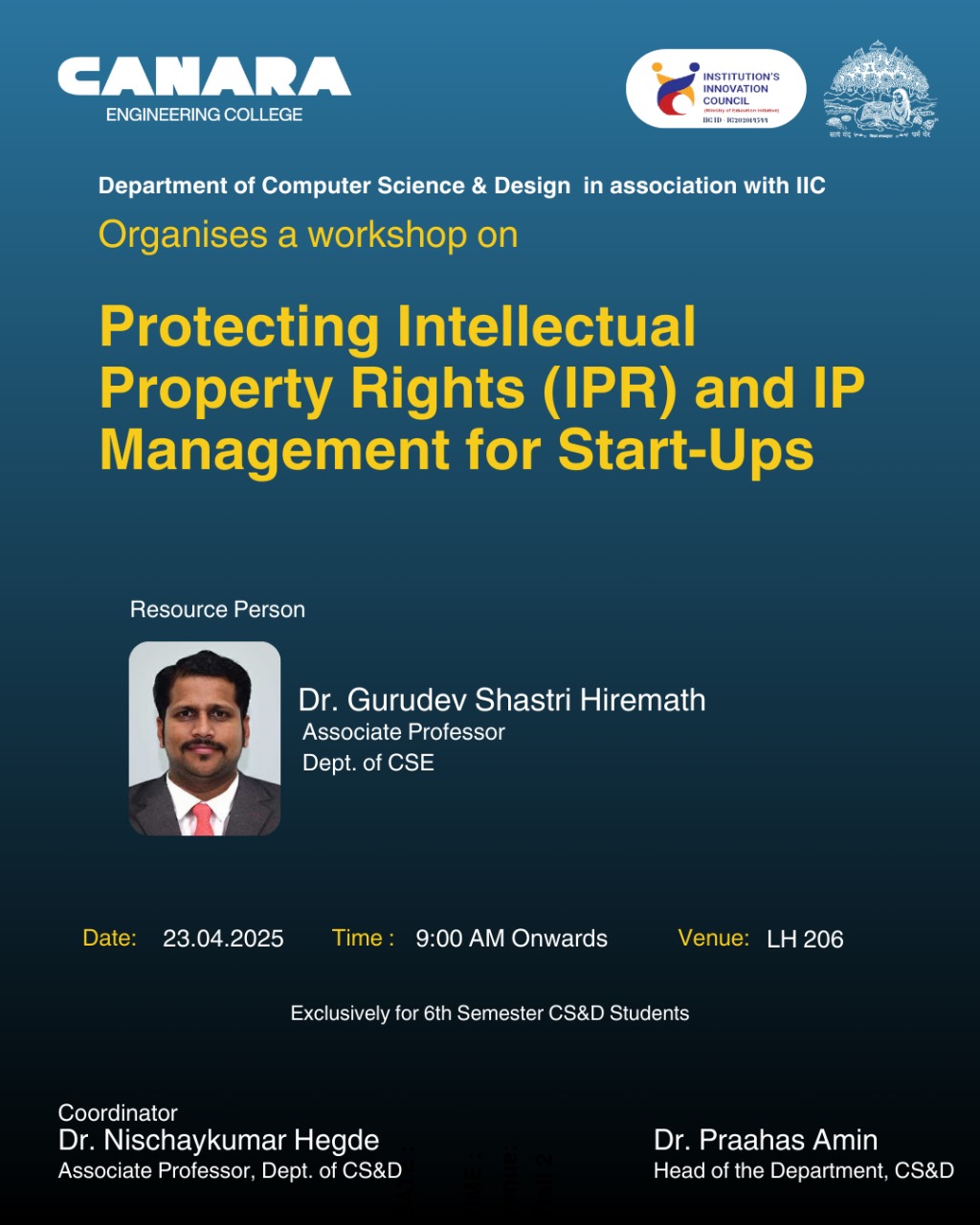
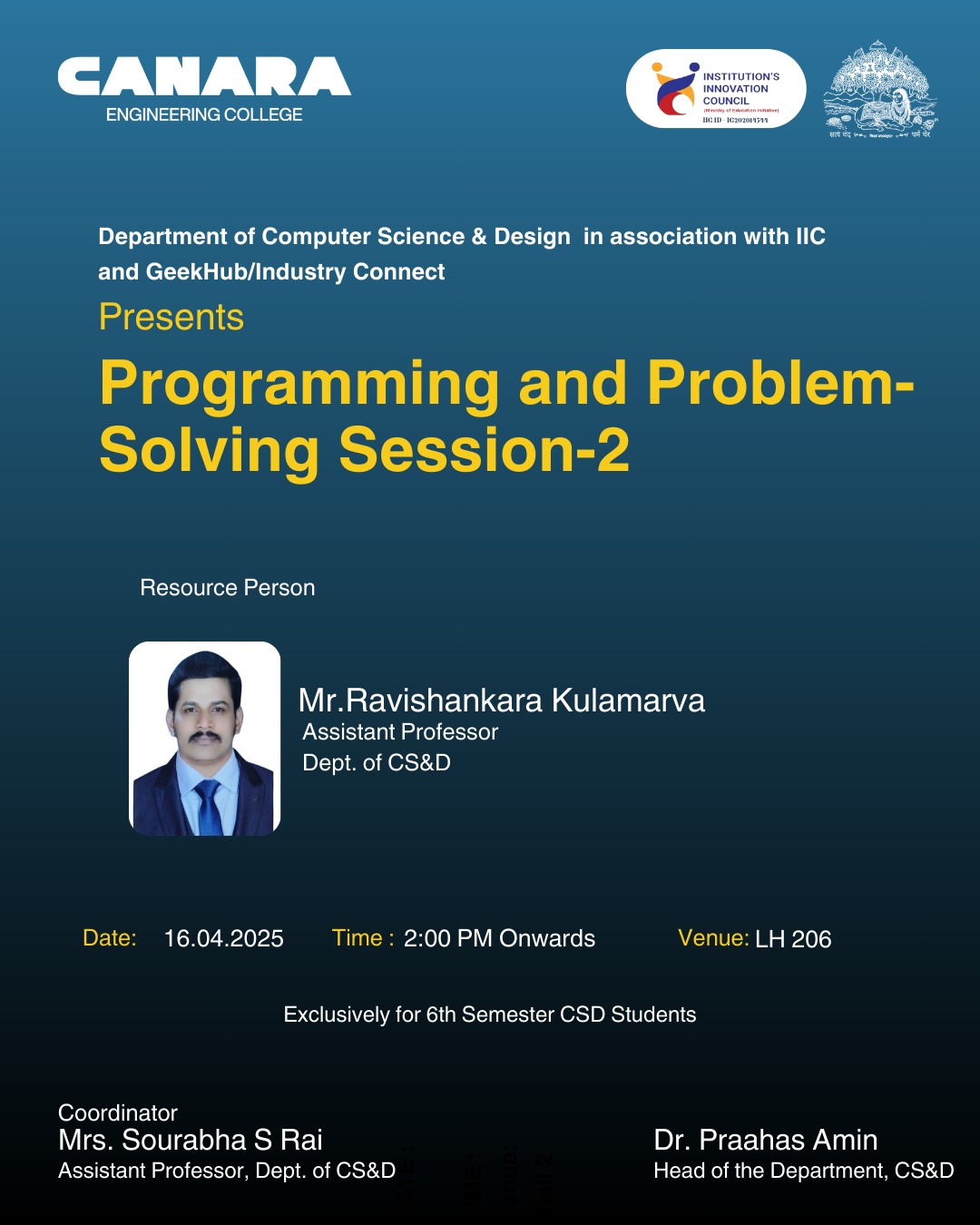
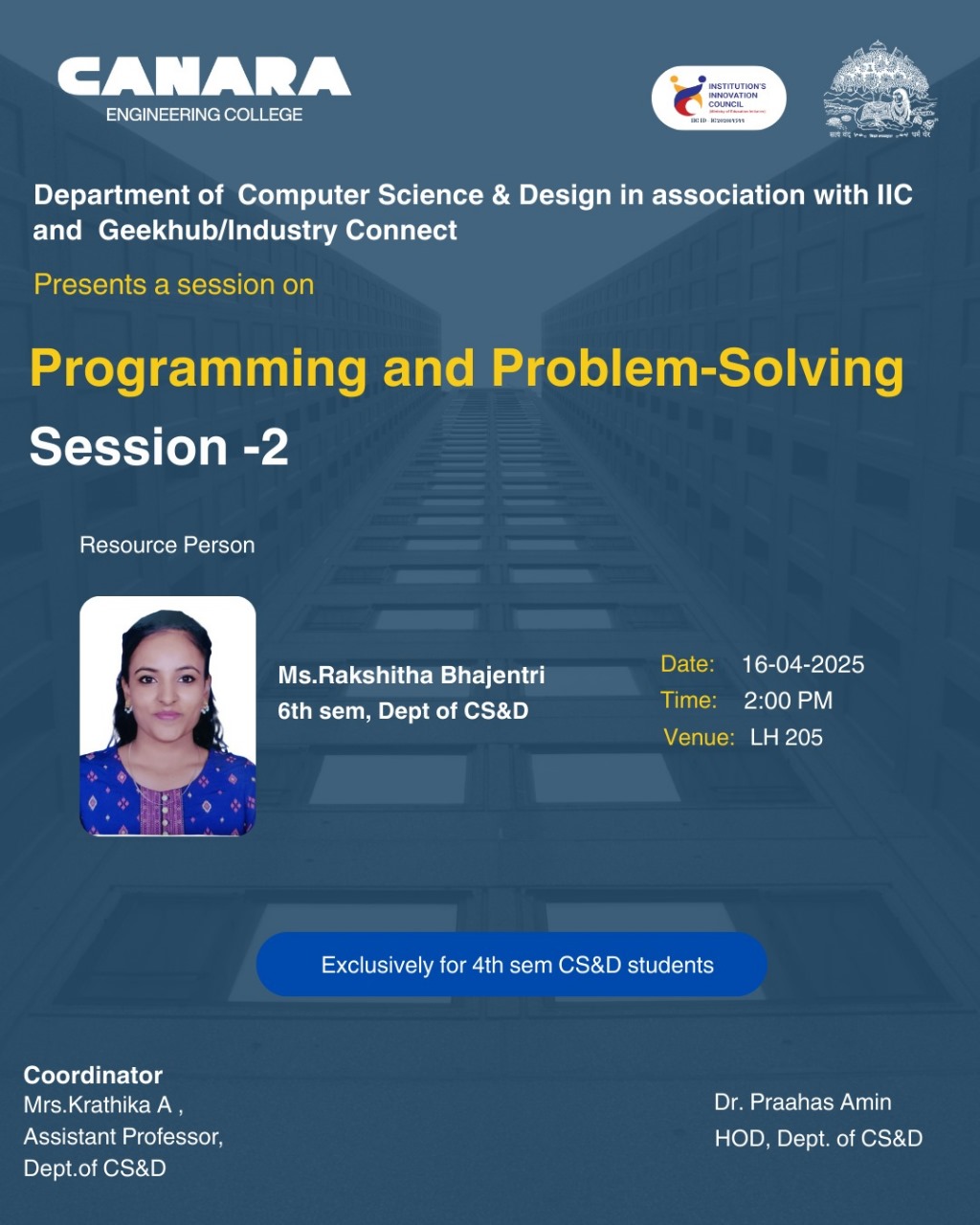
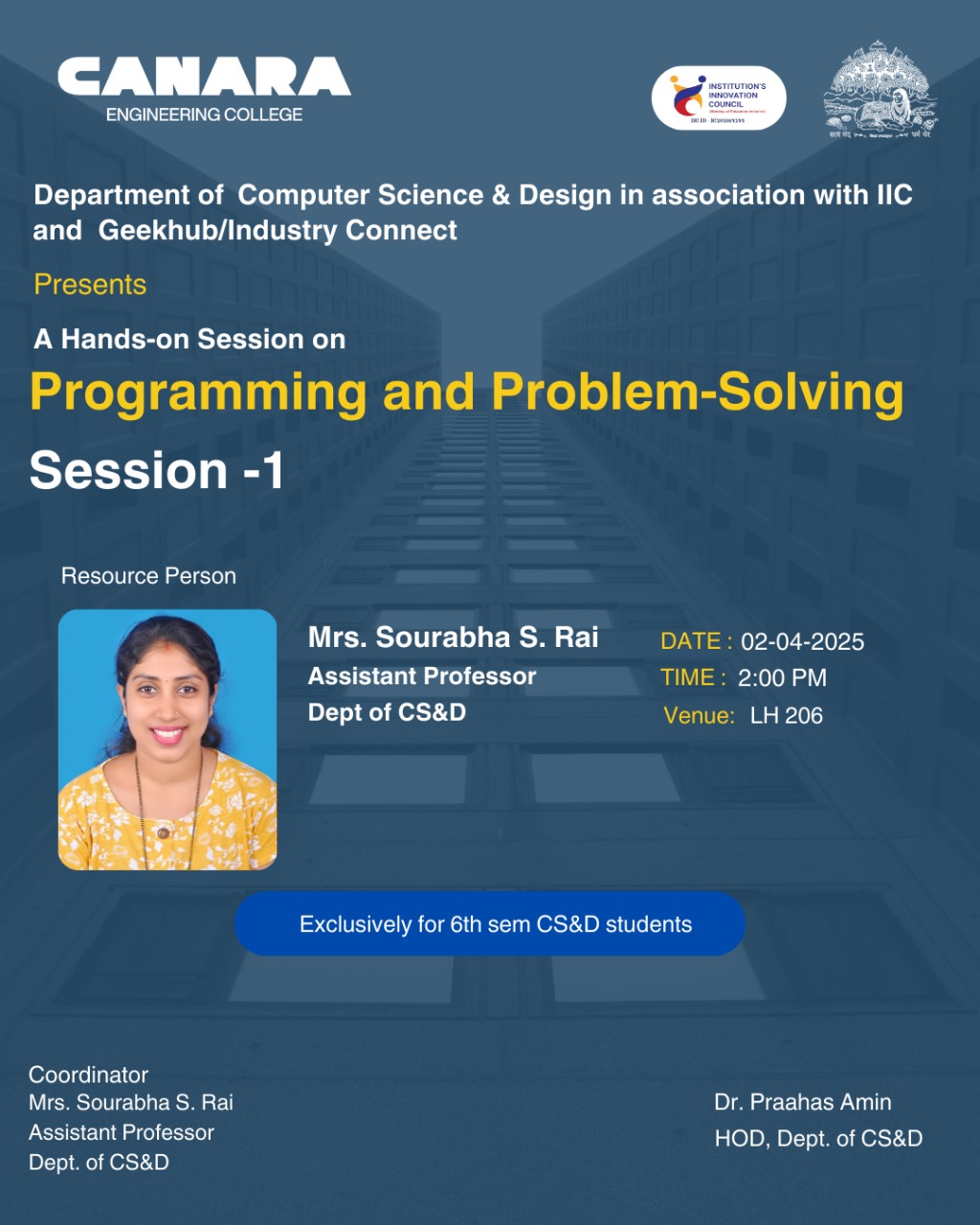
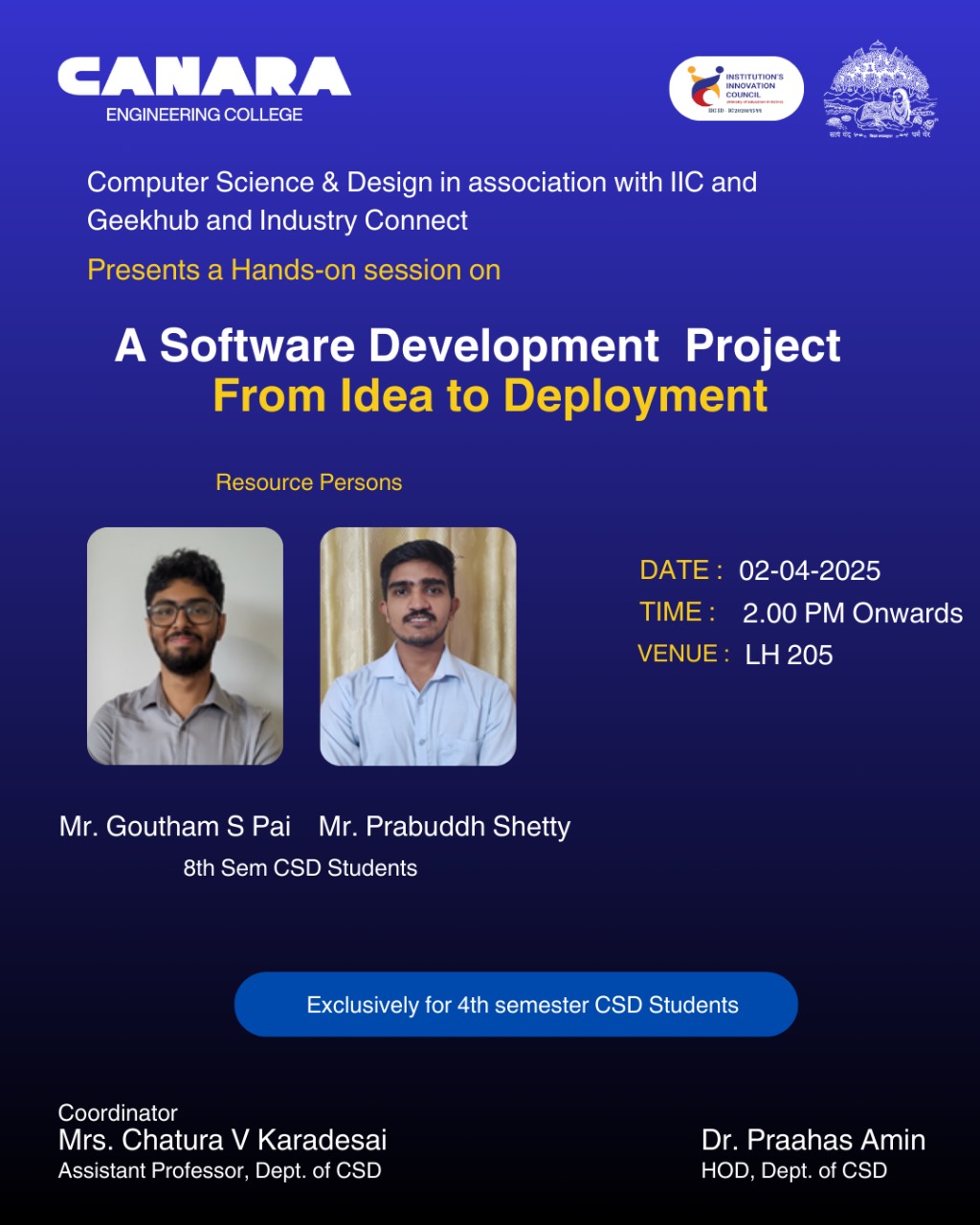
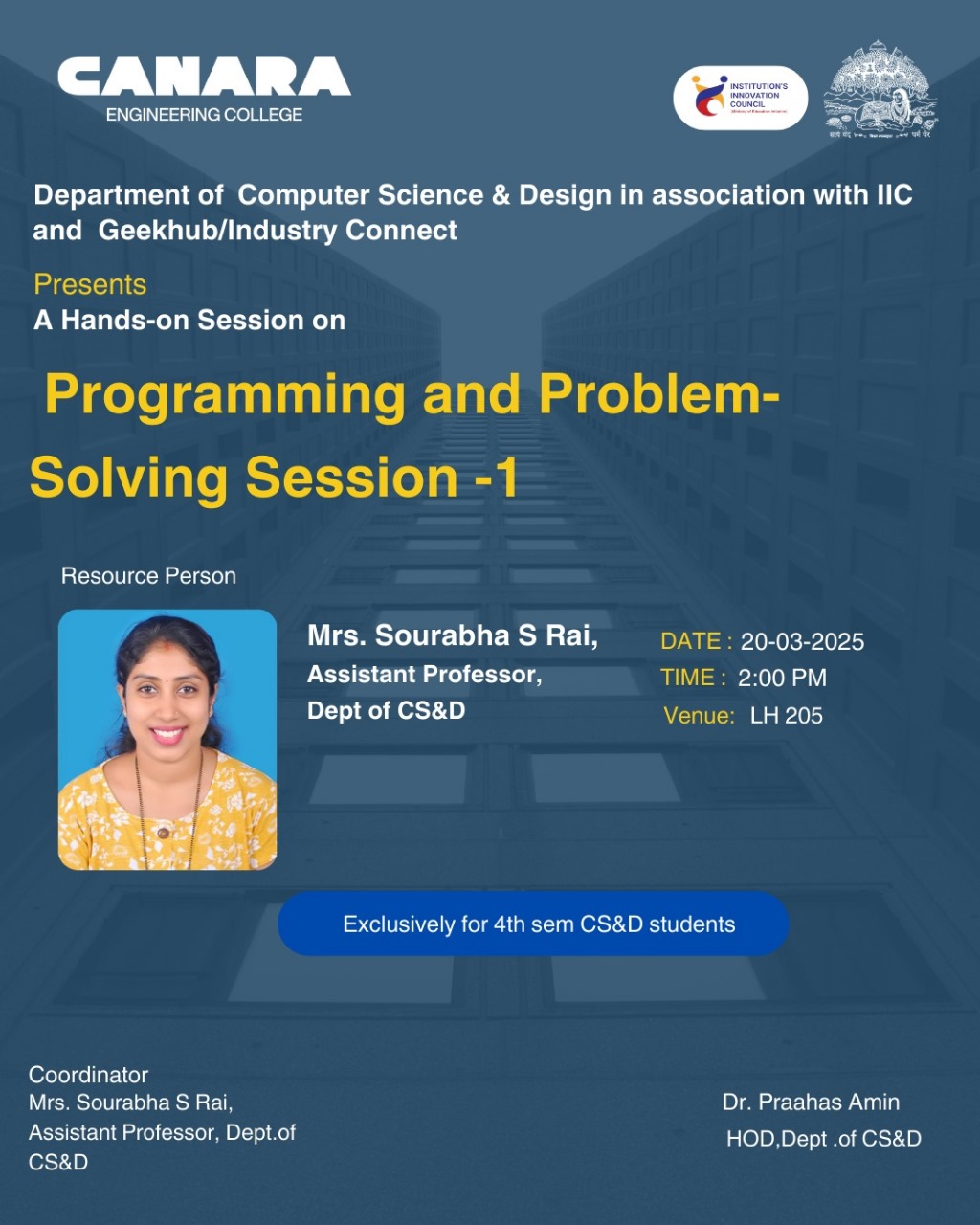
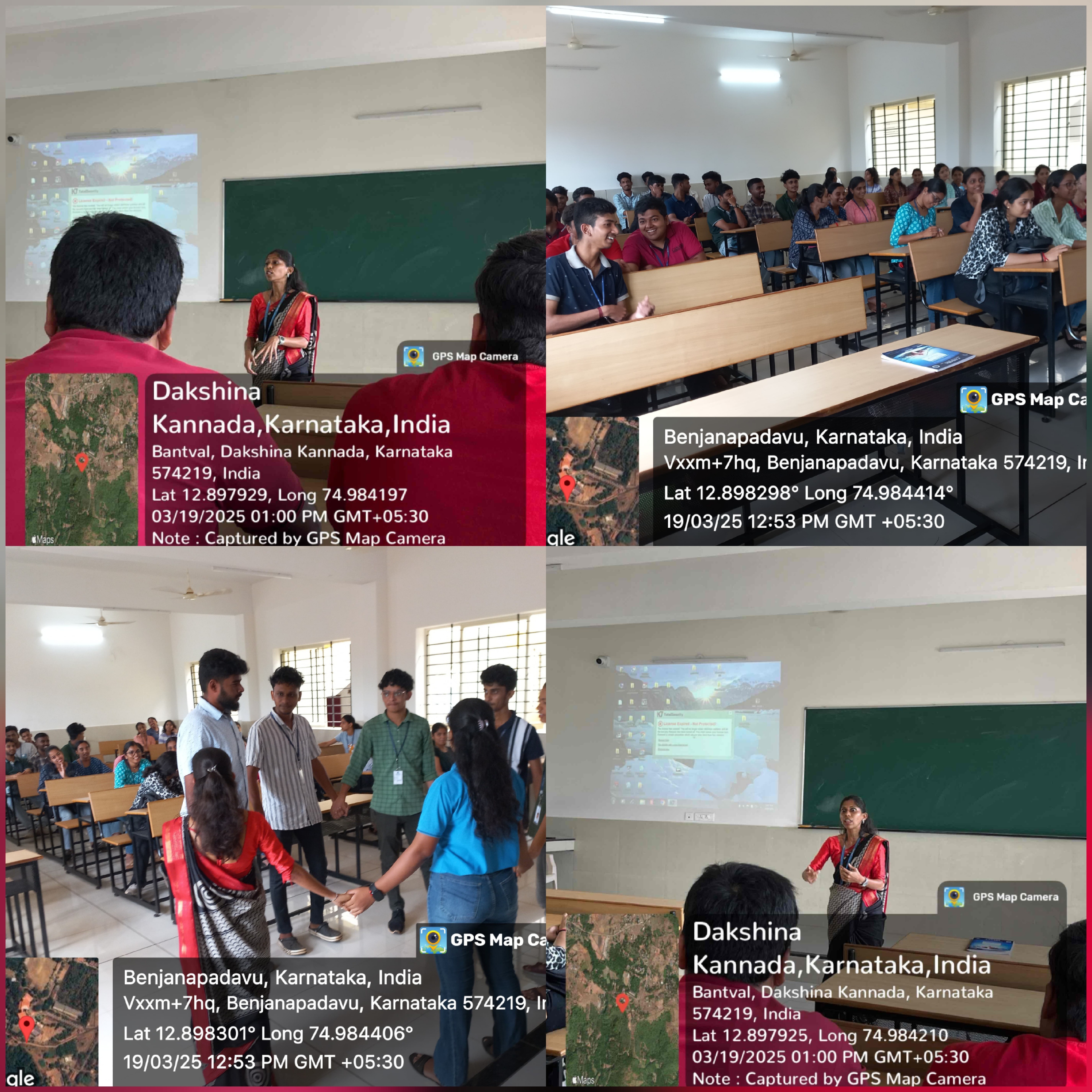
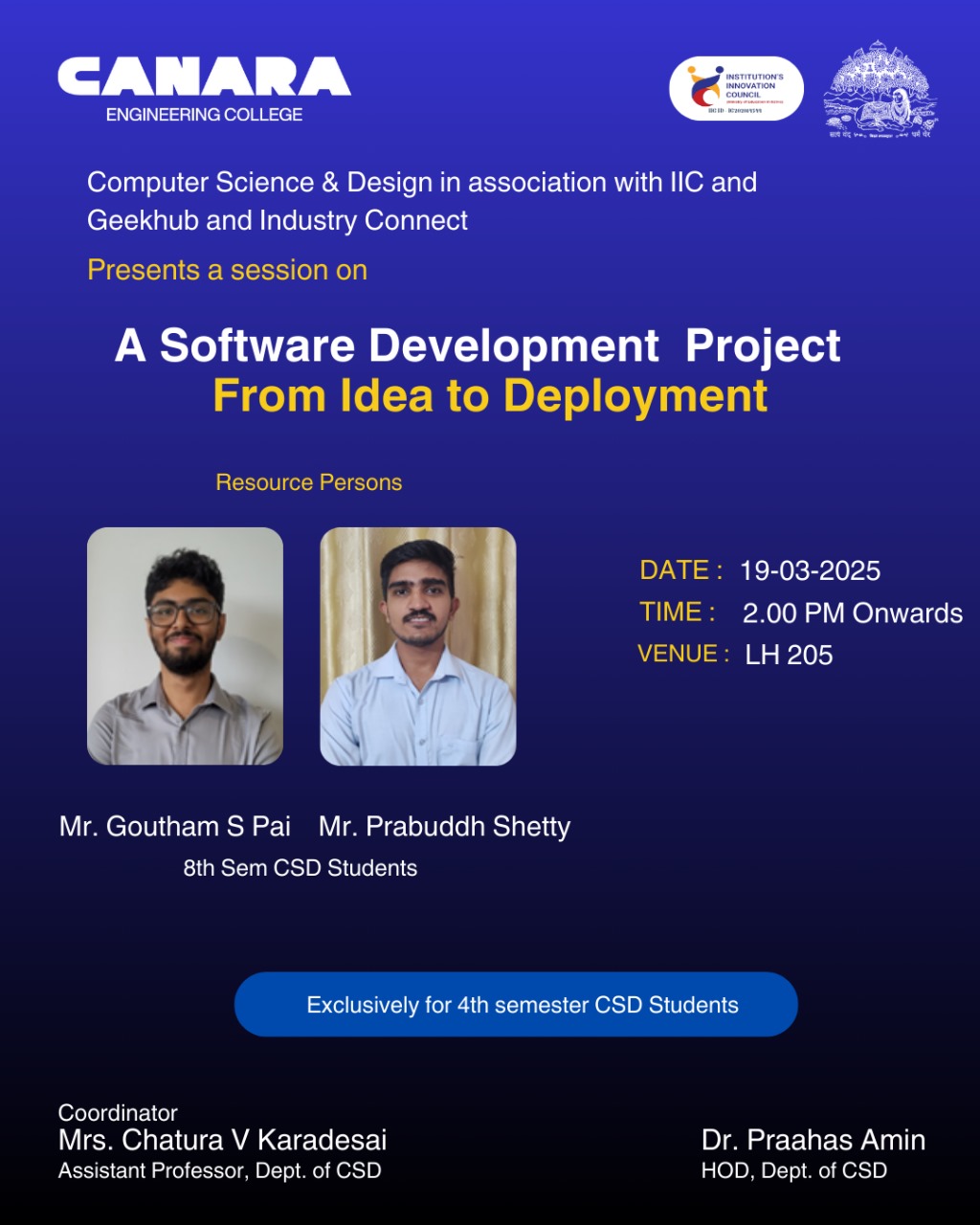
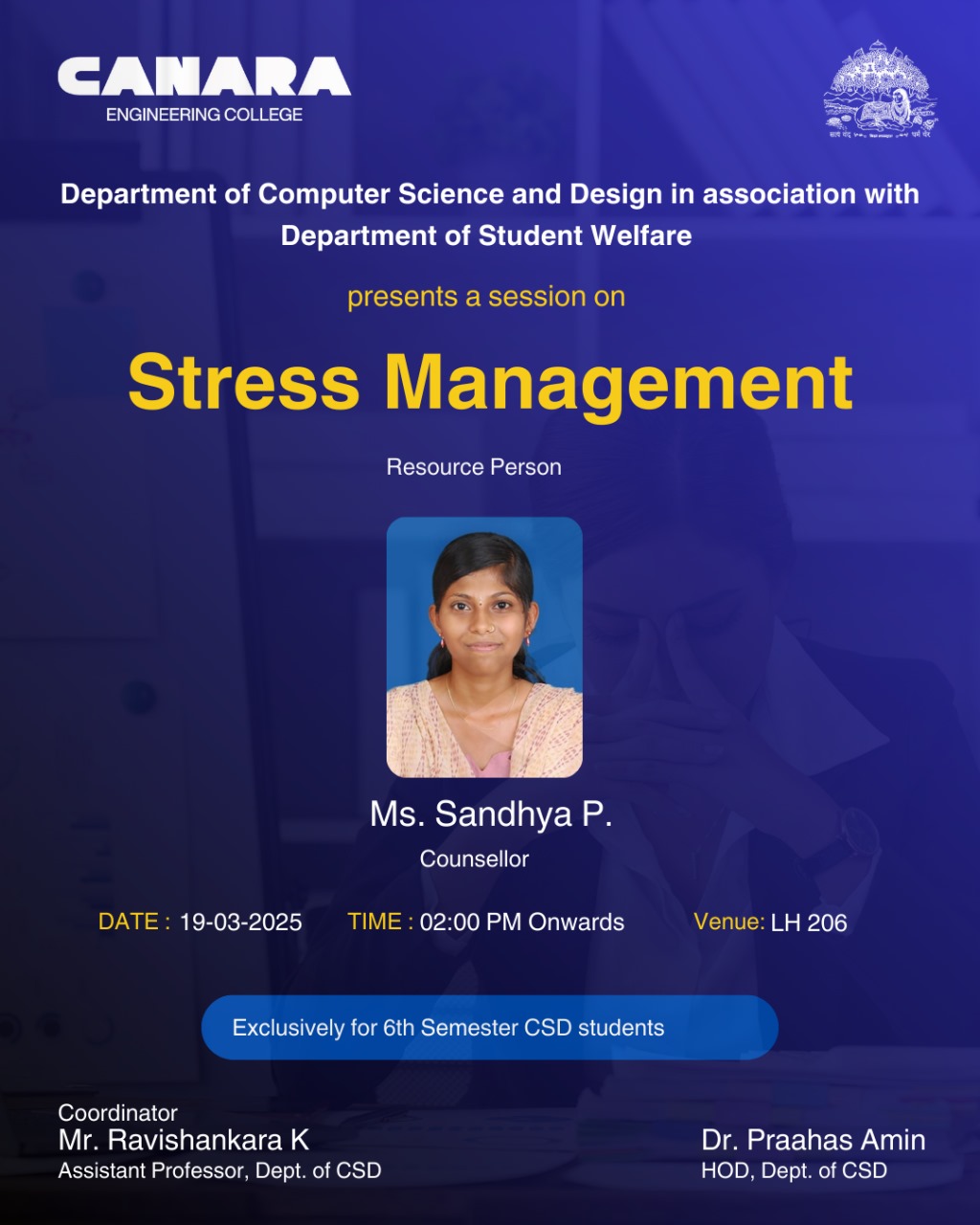
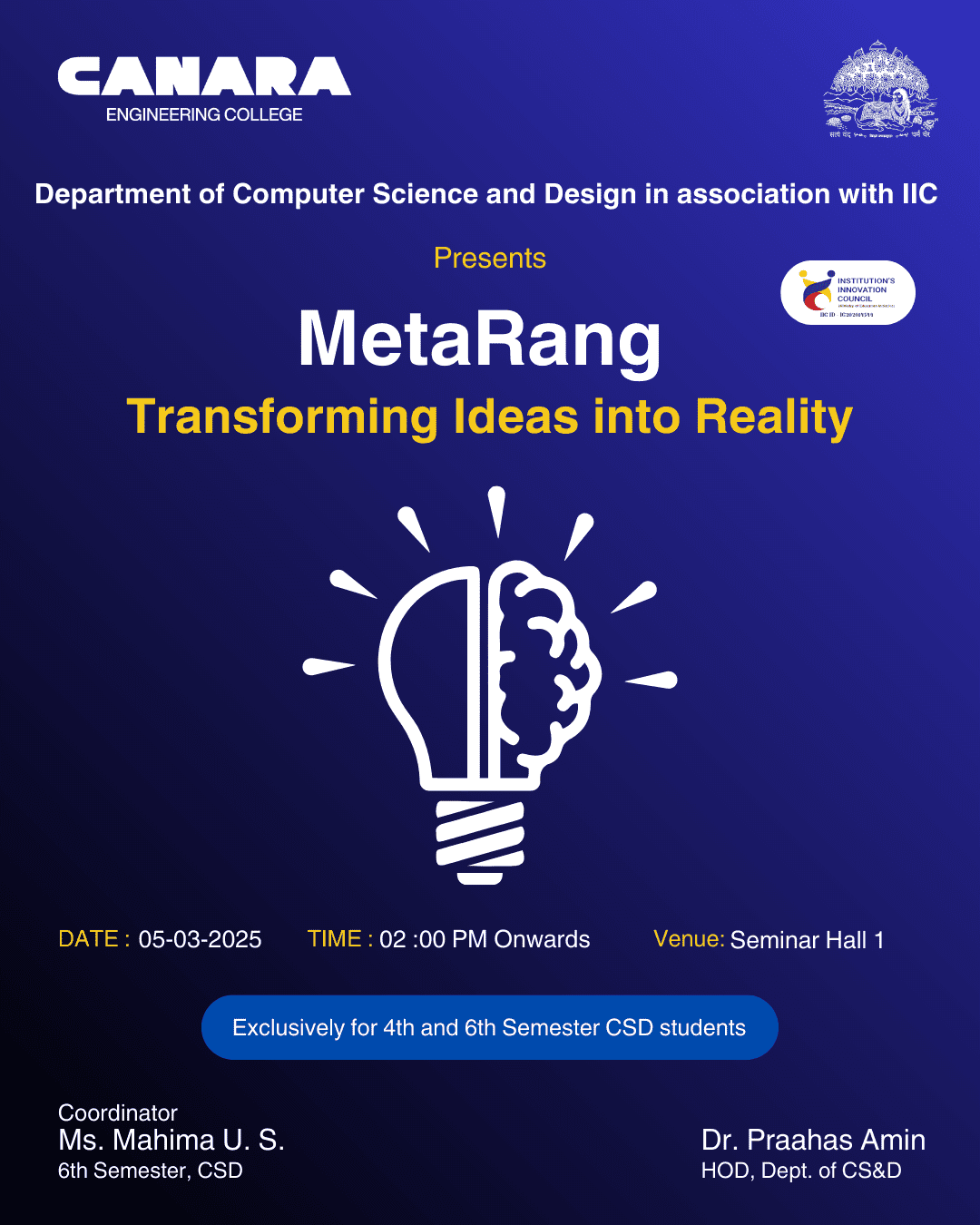
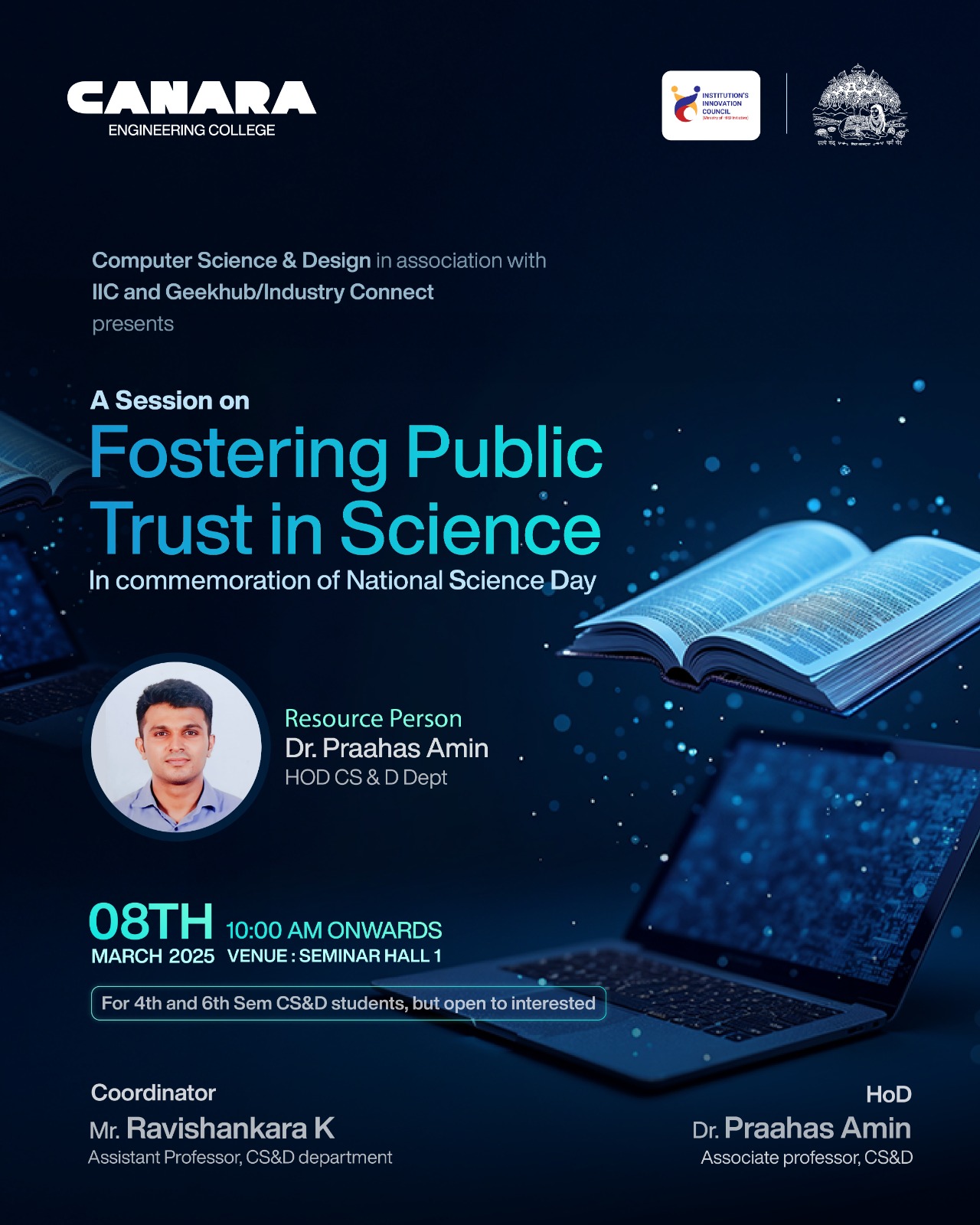
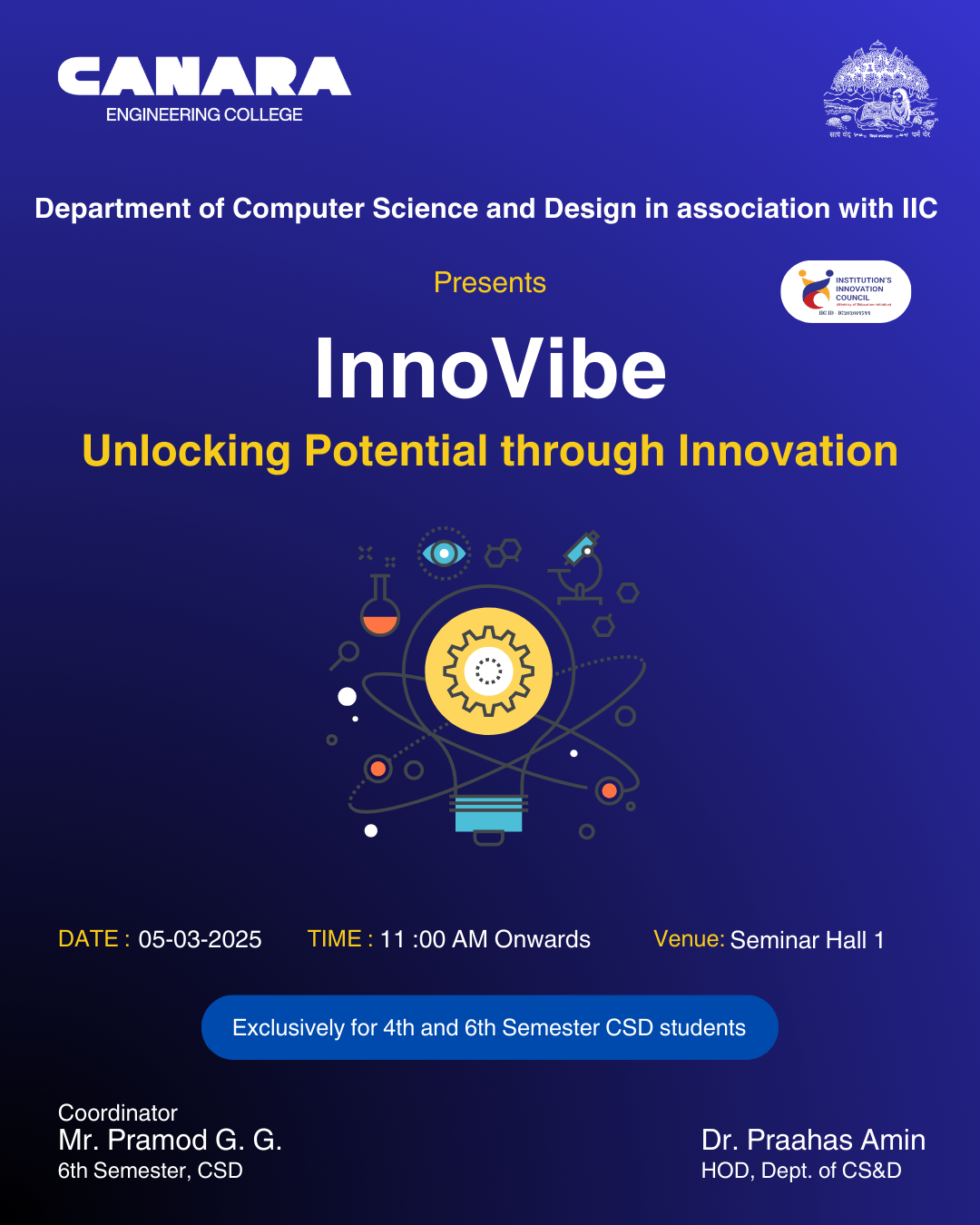
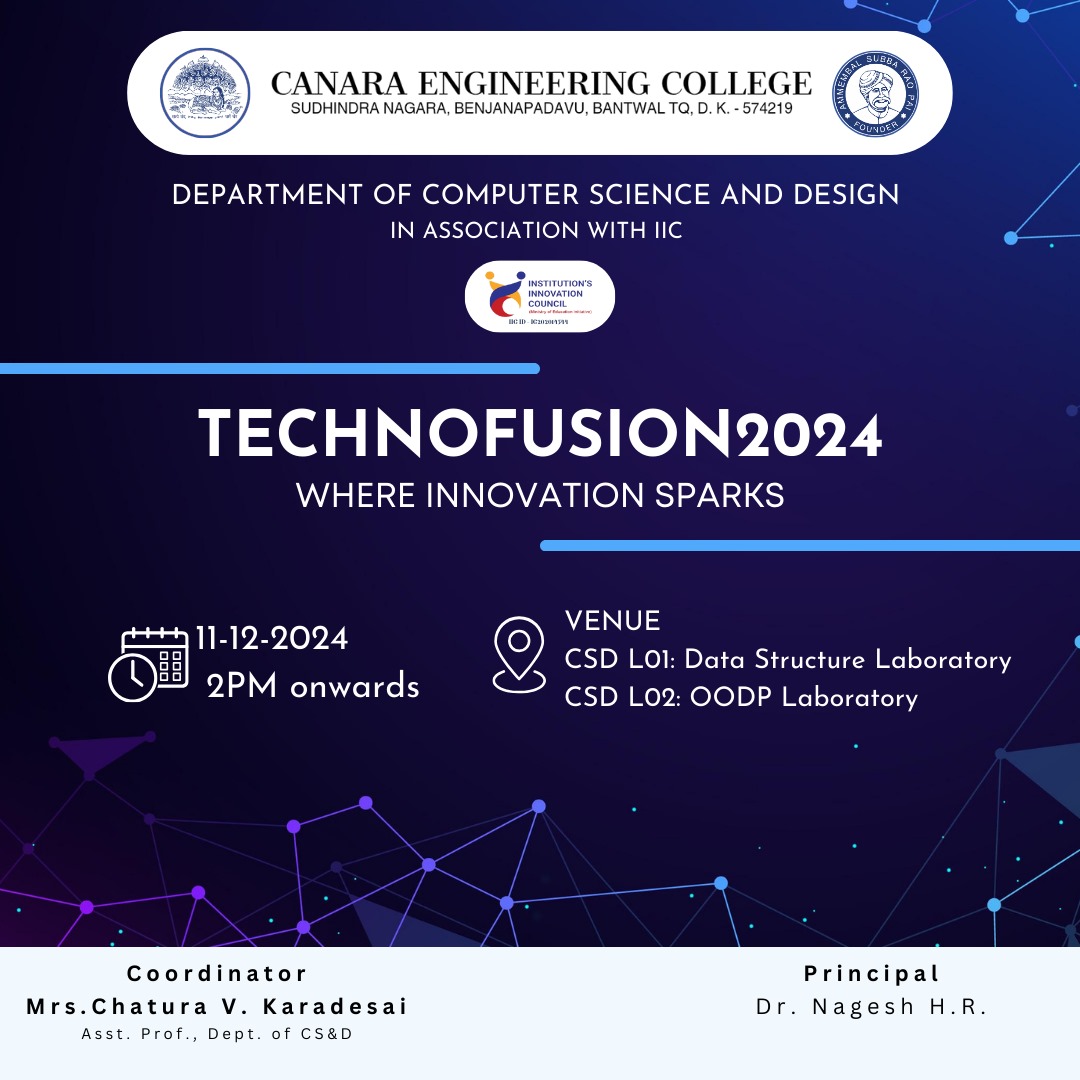
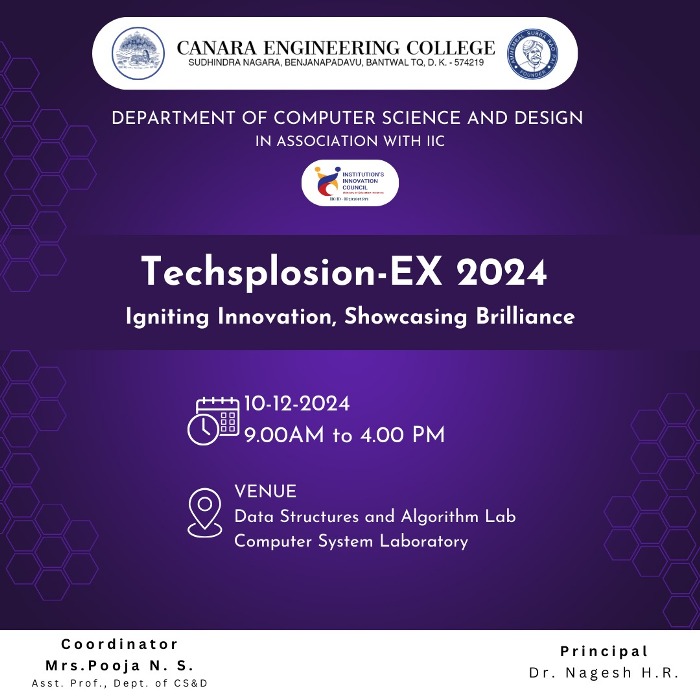
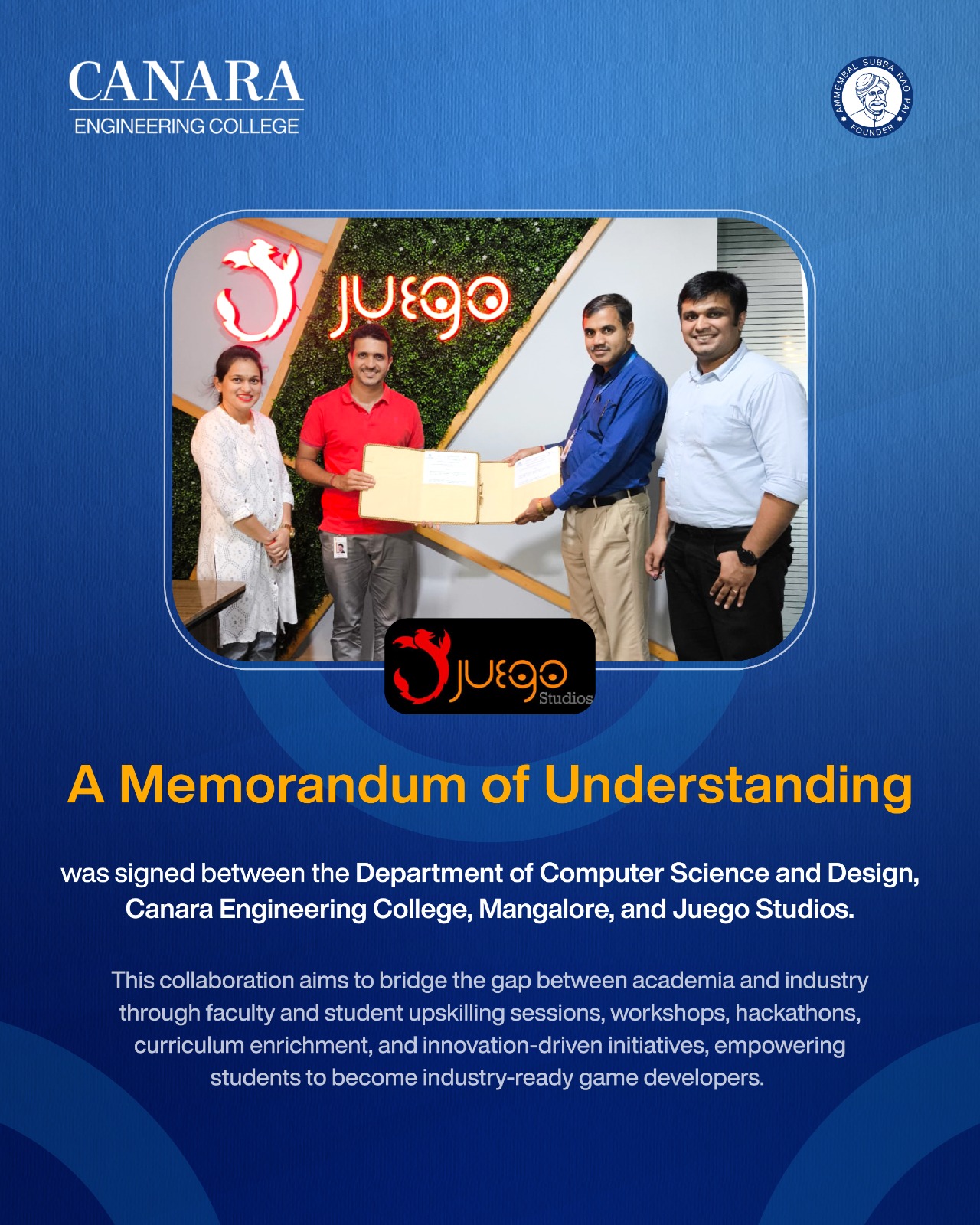
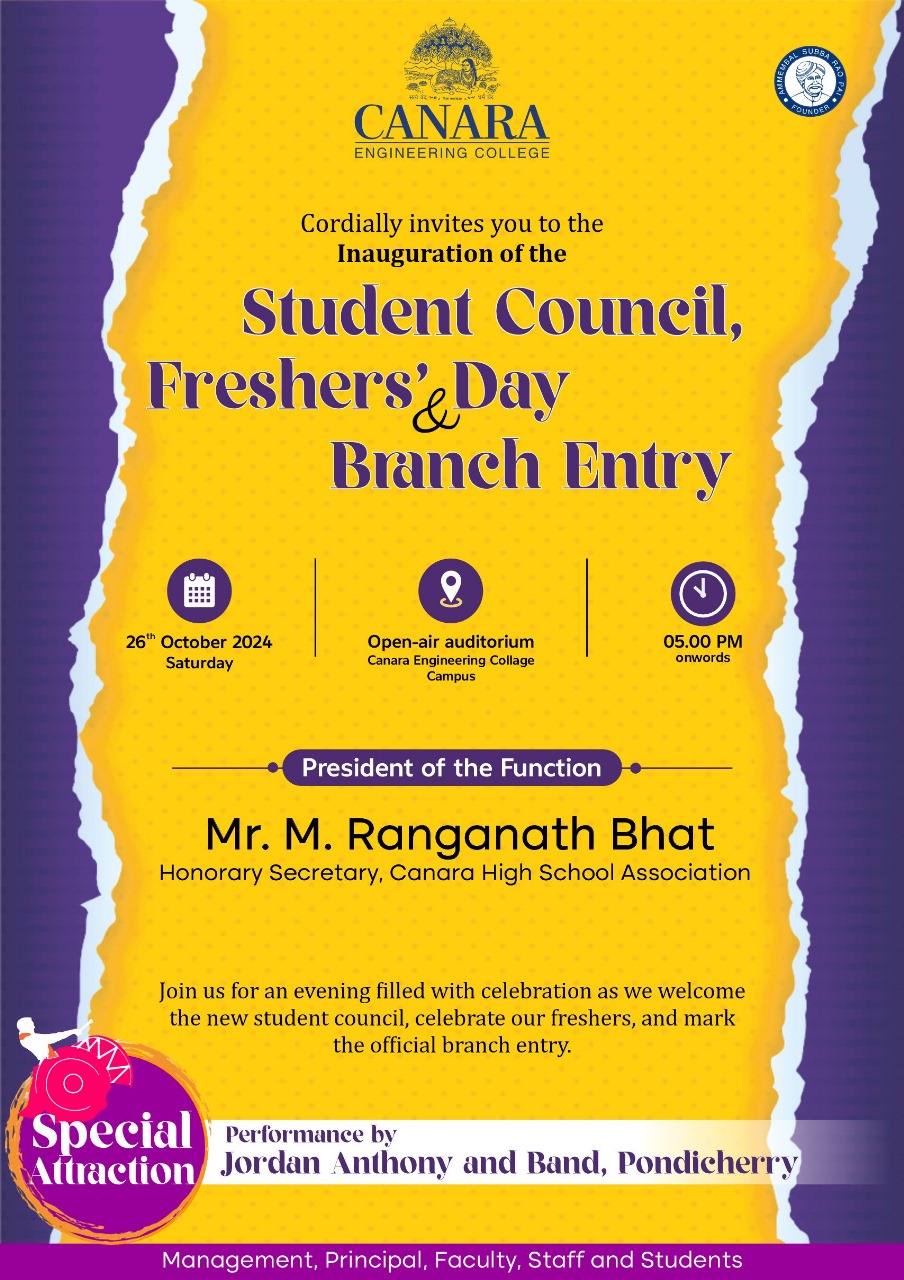
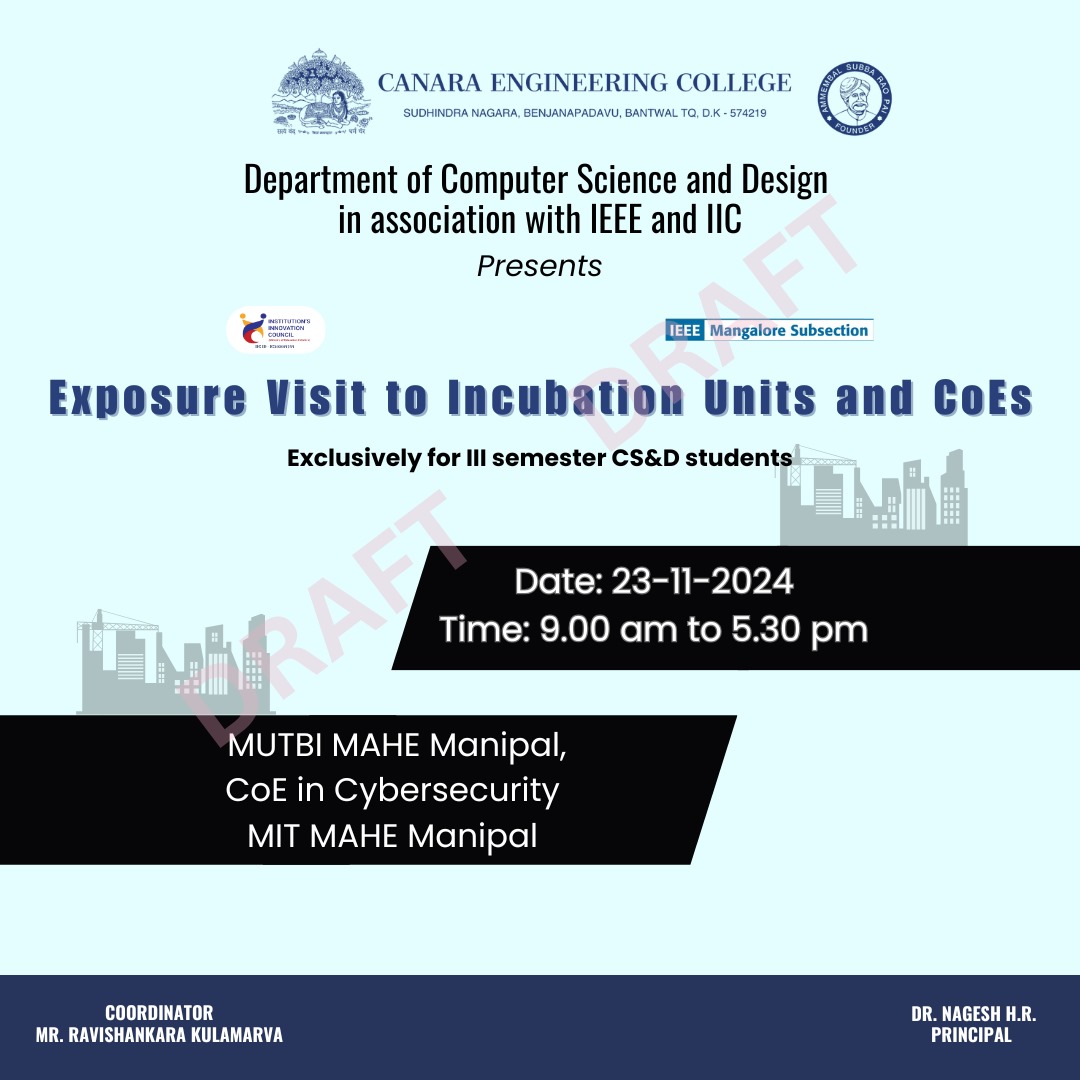

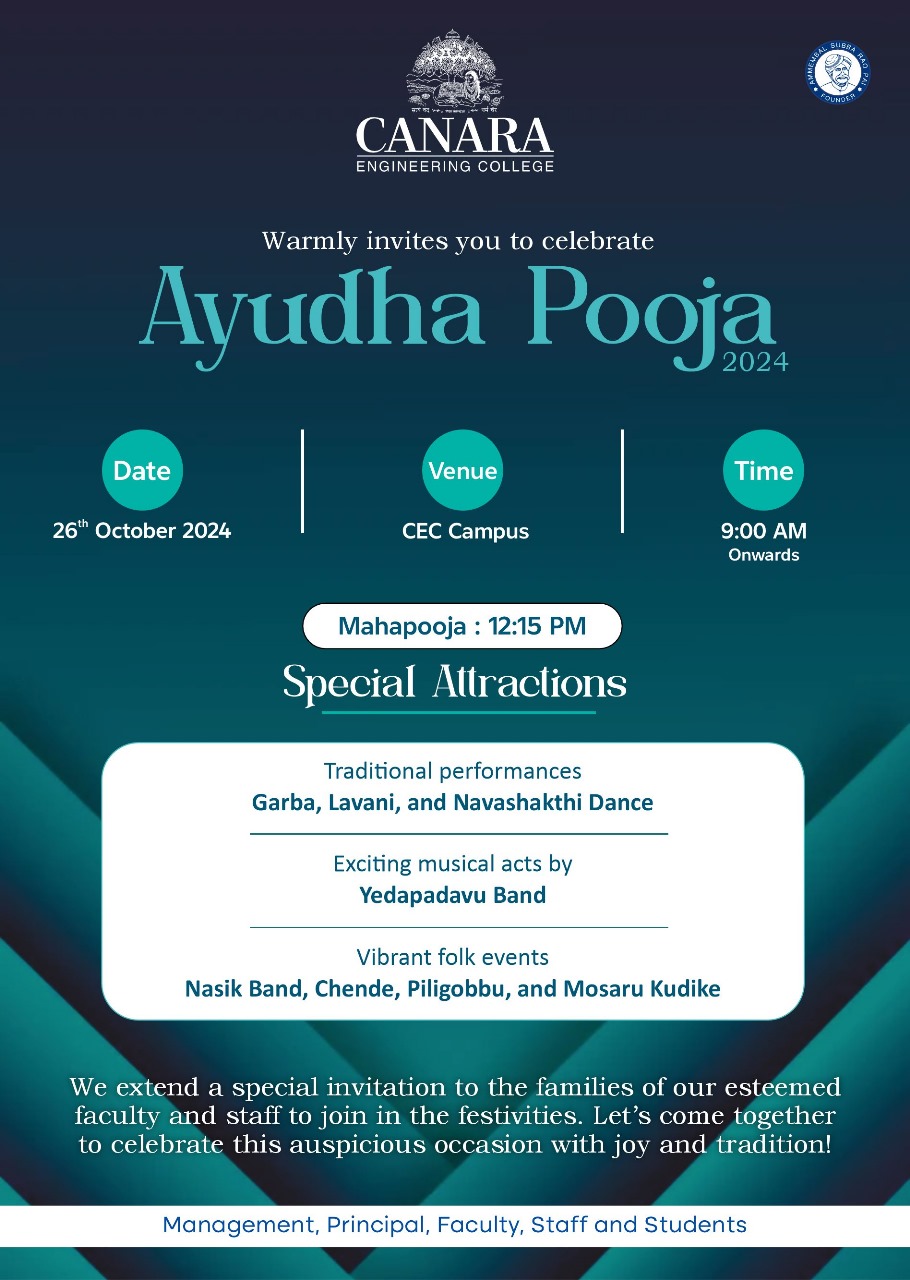
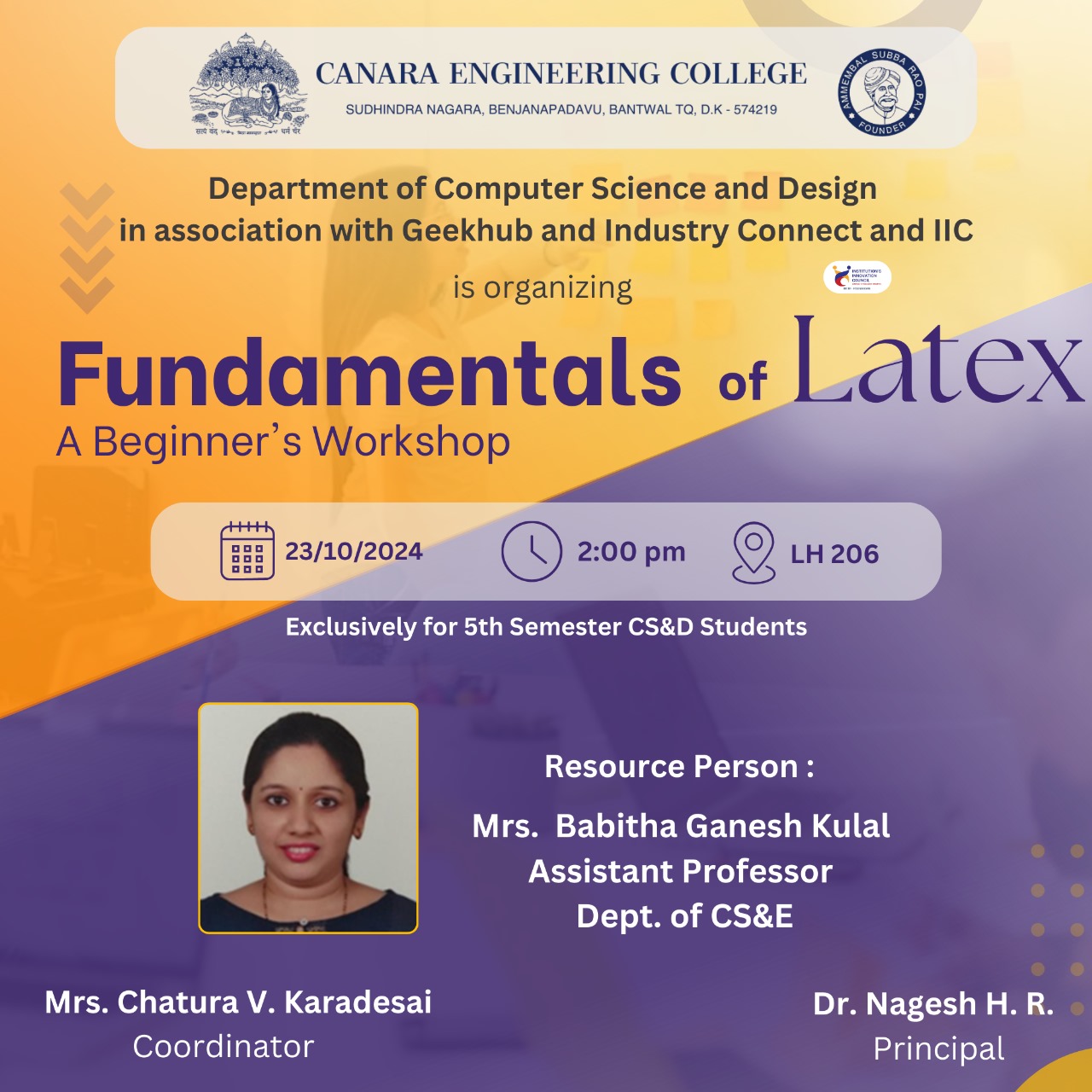
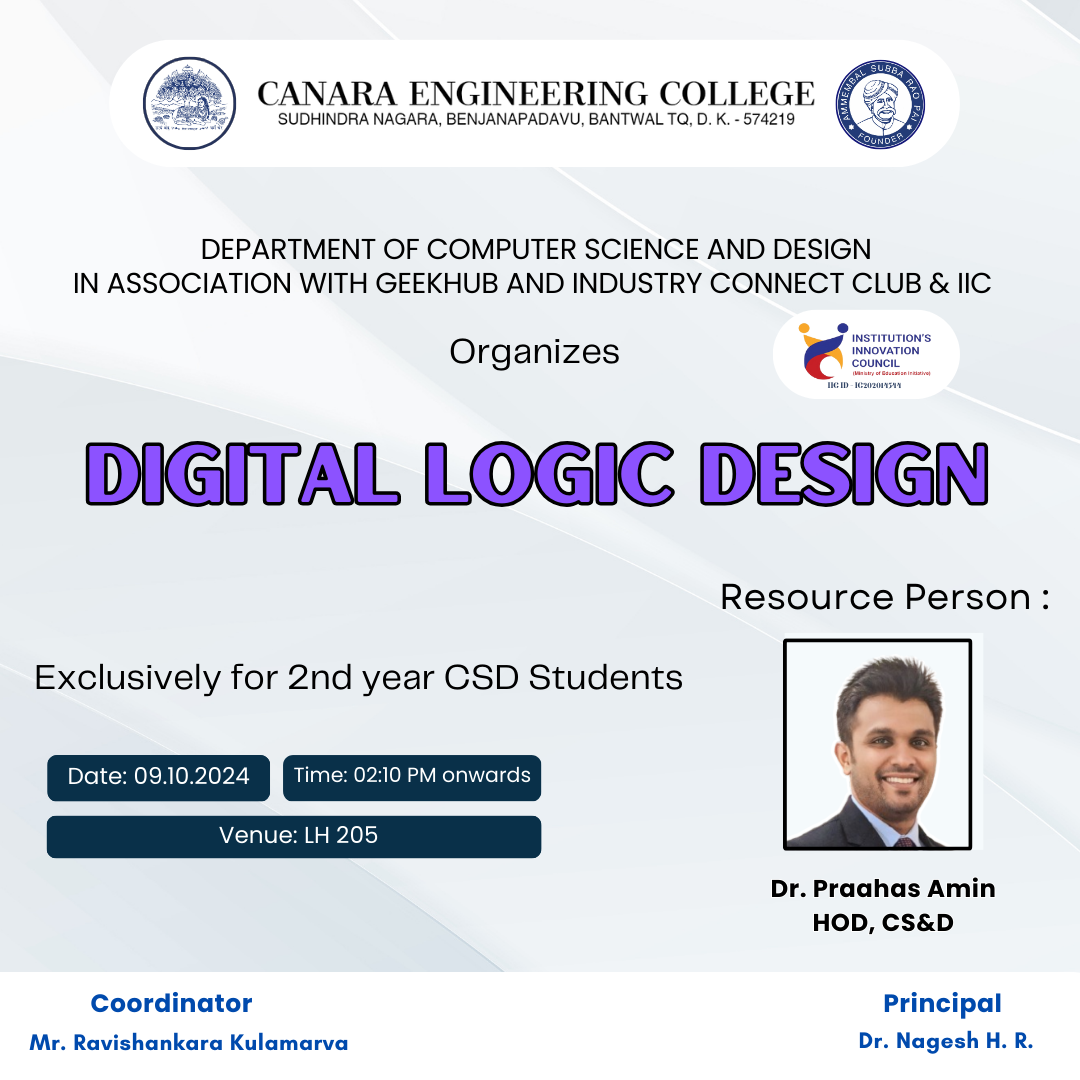
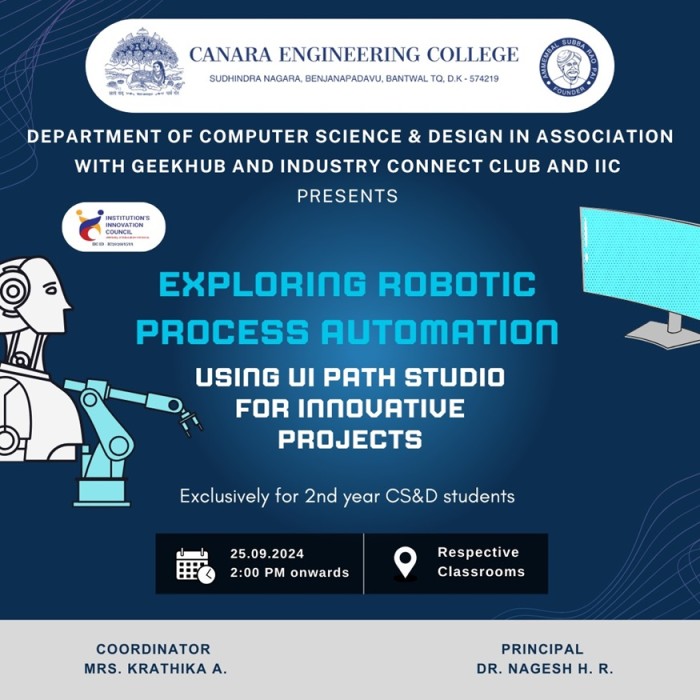
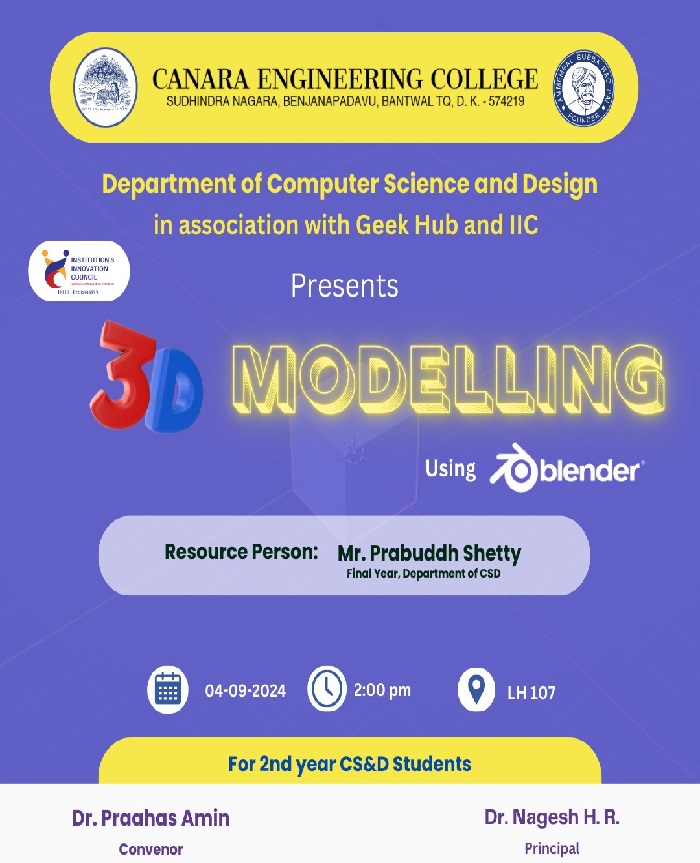

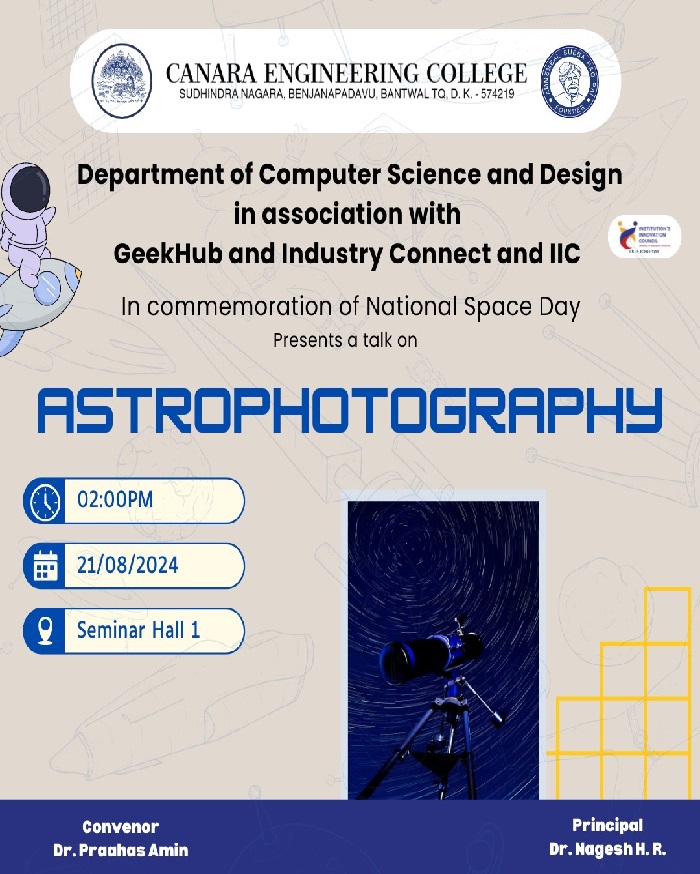

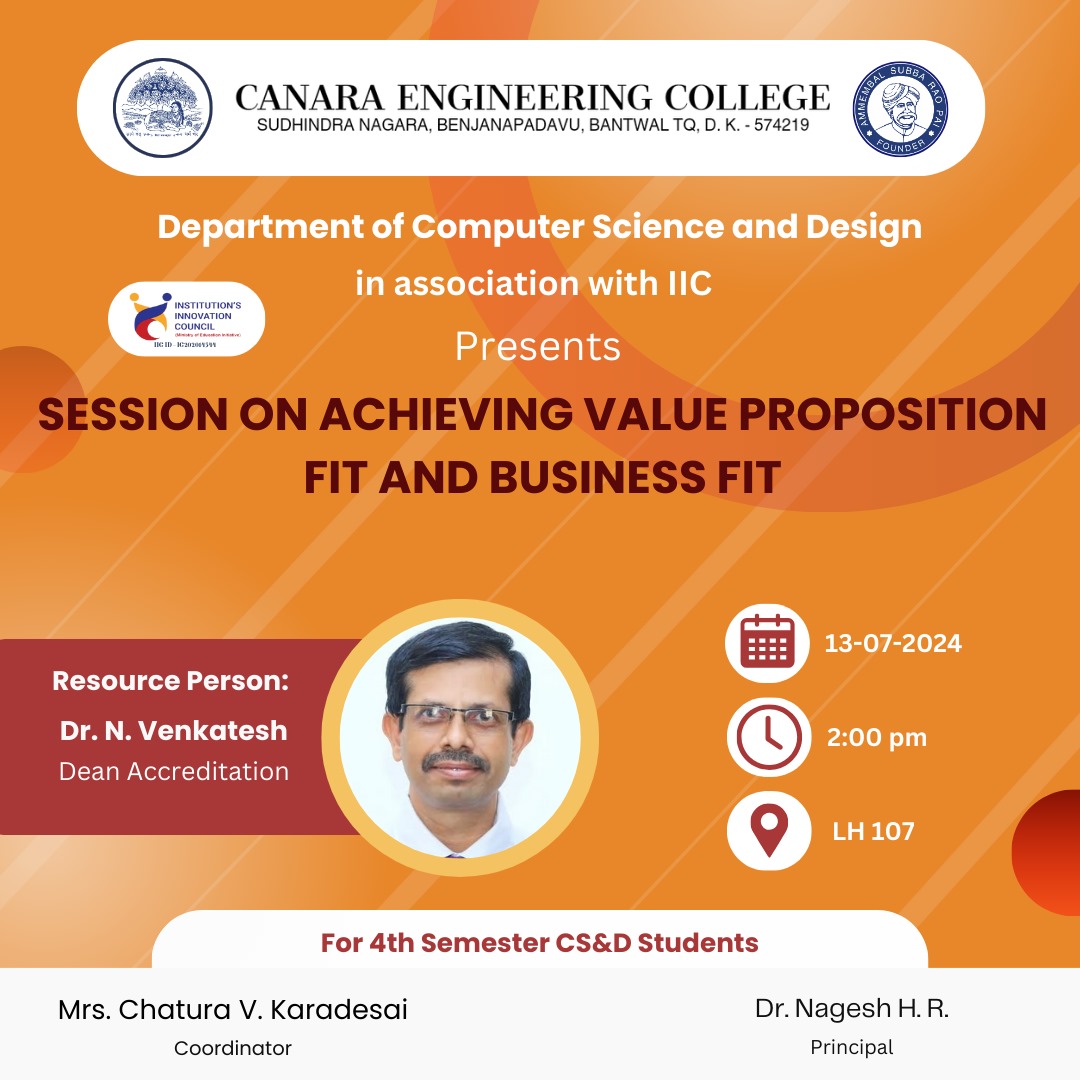

.jpg)
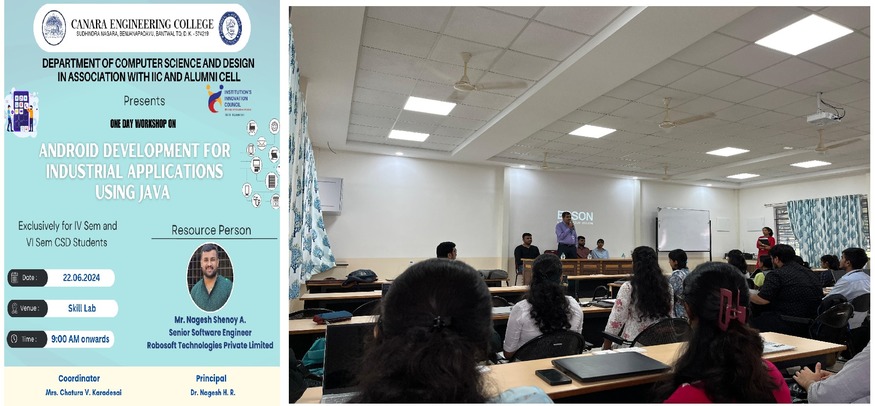
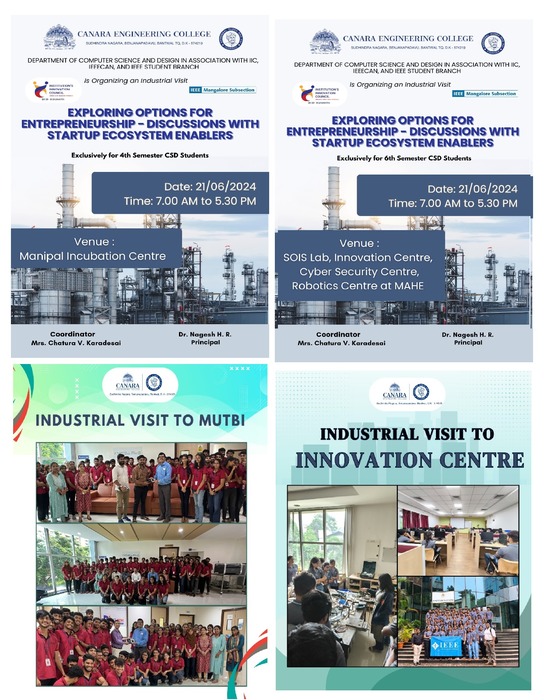
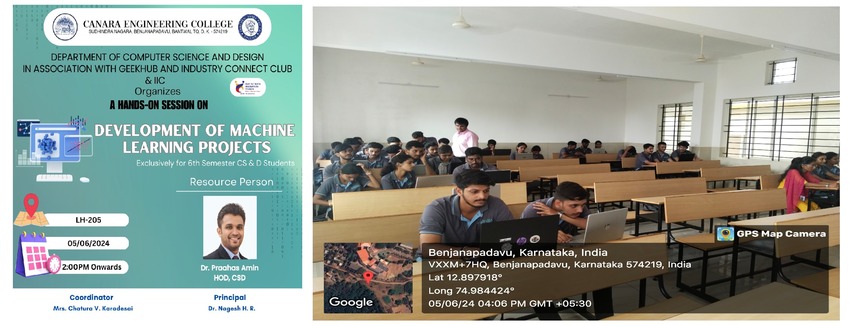
.png)
